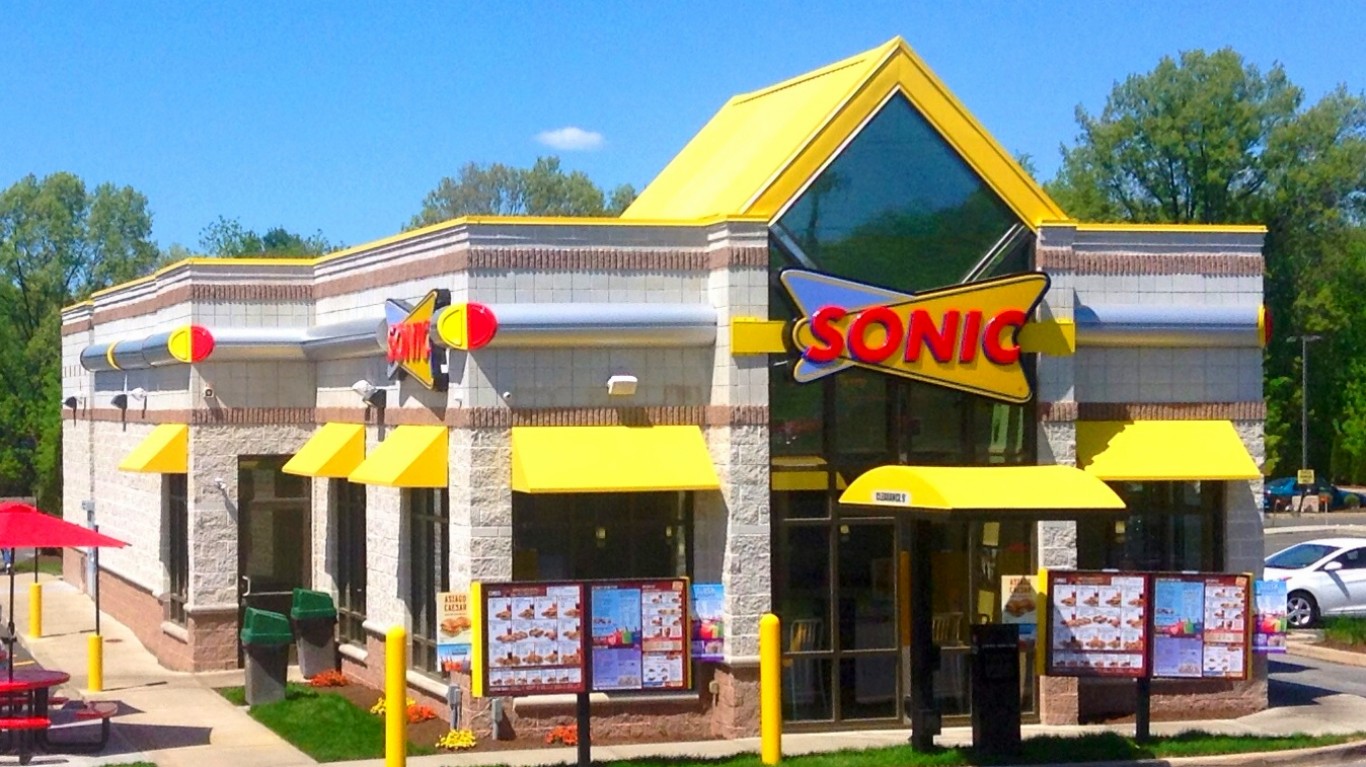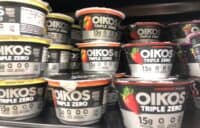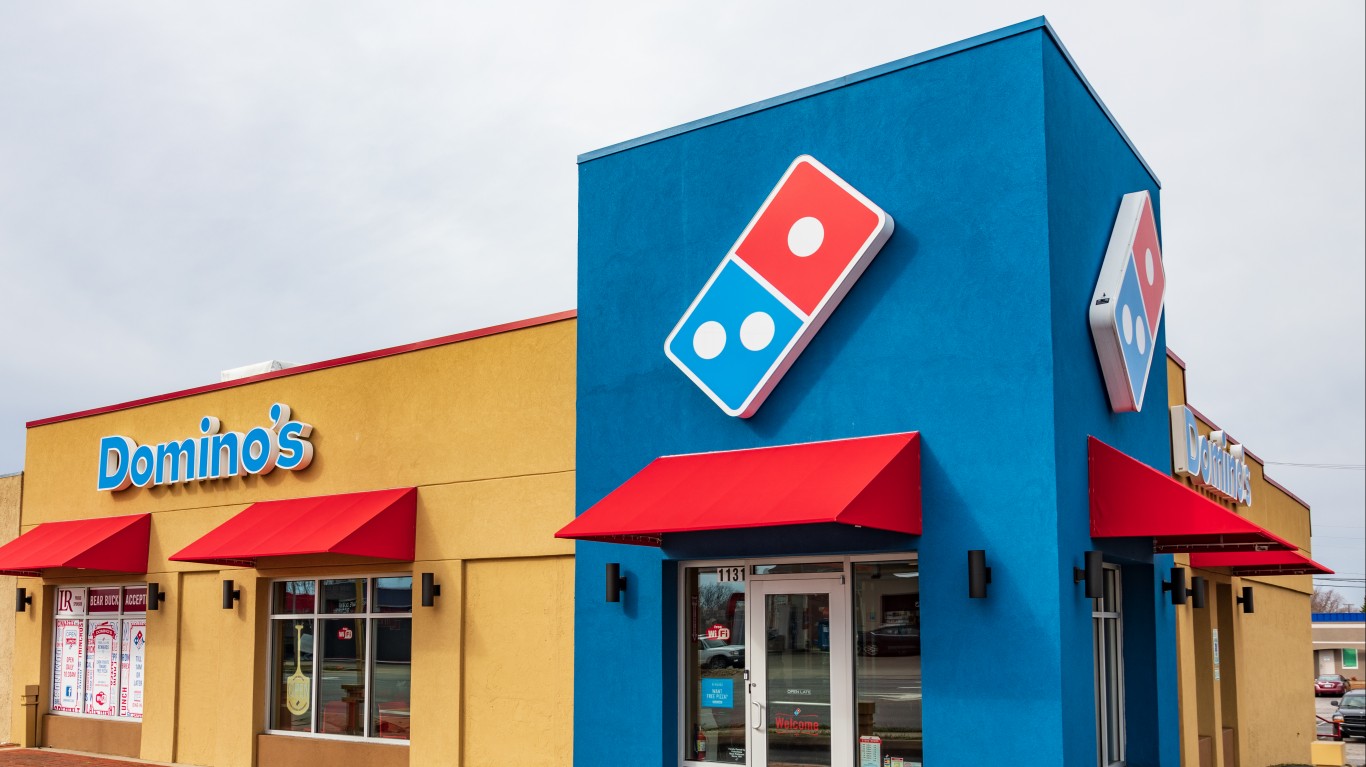
Like virtually any business that depends on direct interaction with the public, the food service industry greatly values customer loyalty. That loyalty is engendered primarily by satisfying patrons — keeping them happy in various ways.
According to an article on building customer loyalty in restaurants appearing in Upserve, a restaurant trade publication, regular customers spend 67% more at restaurants than newcomers do. An increase of just 5% in customer loyalty, says the site, can boost annual profits by as much as 100%.
Chains try to build loyalty — to establish and maintain a base of happy customers — through such measures as marketing campaigns, rewards programs, and the introduction of new menu items, such as new plant-based meat substitutes. As an example, these are 18 fast-food restaurants serving vegan burgers.
The American Customer Satisfaction Index (ACSI), which bills itself as “the only national cross-industry measure of customer satisfaction in the United States,” ranks customer satisfaction every year across 46 industries, food service included. For its most recent report on the restaurant industry, ACSI surveyed some 23,468 customers, chosen at random, between mid-2018 and mid-2019.
Click here for a list of restaurant chains with the happiest customers.
The ACSI restaurant index is divided into two parts, one covering full-service restaurants, the other focused on limited-service — i.e., fast-food — operations. Both are judged according to 11 criteria, including speed of service, reliability of mobile app, and of course food variety and quality. (These are the best-selling chain restaurant foods of 2019.)
Overall, says ACSI, full-service restaurants maintained a high and stable customer satisfaction score averaging 81 points across the category. Limited-service chains fared less well, declining 1.3% from the previous year for an average score of 79.
Though large restaurant chains — as opposed to more vulnerable independents — will likely survive the coronavirus pandemic, the next round of ACSI customer satisfaction rankings will doubtless reflect the success with which these chains have addressed the crisis.
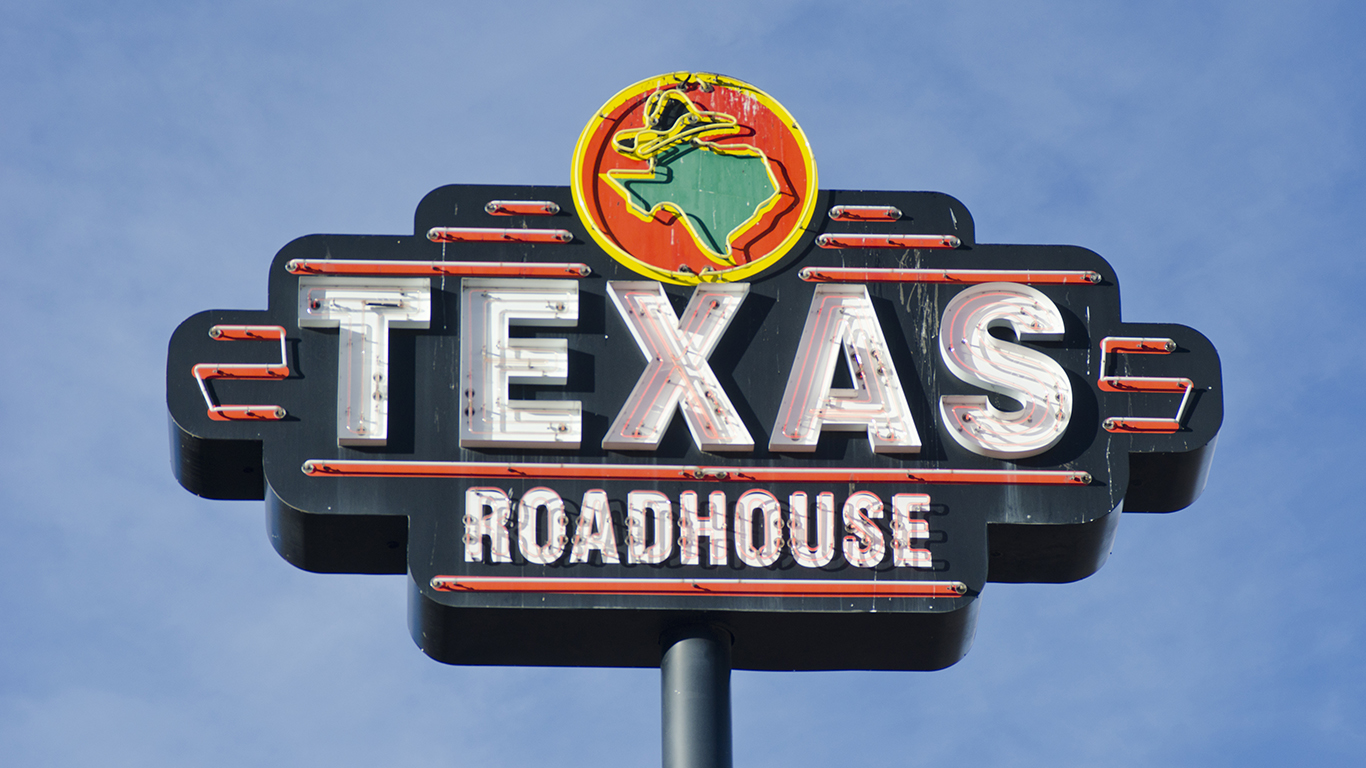
Texas Roadhouse
> Type: Full-service
> Score: 83
How satisfied are customers of this Indiana-based chain? Last year, the Wichita Eagle reported a couple named Ron and Diana Watson had eaten at the restaurant’s West Wichita location six nights a week since it opened in 2004. Talk about customer loyalty. ACSI notes that “According to its customers, Texas Roadhouse offers superior value compared with other full-service chains.”
[in-text-ad]
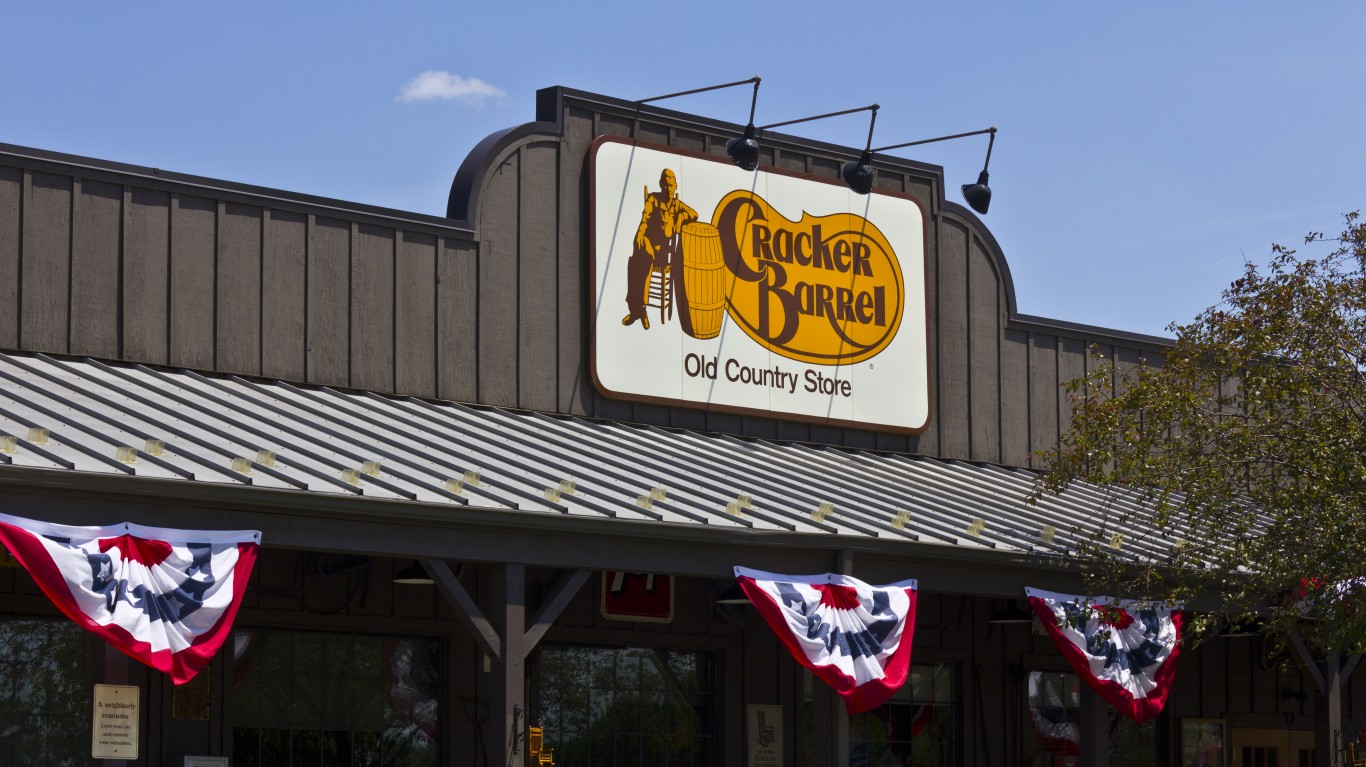
Cracker Barrel
> Type: Full-service
> Score: 82
In-house data in late 2018 showed “declines in guest experience metrics and a lack of emphasis on our value proposition and on delivering cravable food offerings,” company CEO Sandy Cochran told the chain restaurant trade publication FSR. Cracker Barrel rebounded, though: Last year, a Newsweek/Statista survey gave the chain its highest ranking in the casual dining category — and the ACSI rankings placed it second among full-service restaurants. ACSI found that customers particularly like Cracker Barrel’s mobile app.
LongHorn Steakhouse
> Type: Full-service
> Score: 81
Owned by Darden, the restaurant company whose best-known chain is Olive Garden (see below), this steakhouse chain offers a LongHorn Steakhouse Awards program that gives customers a $5 credit for future use after their first visit plus a free birthday dessert, among other things. The trade publication Nation’s Restaurant News discovered last year that almost half of customer visits to LongHorn were motivated by brand loyalty rather than convenience or other circumstances.
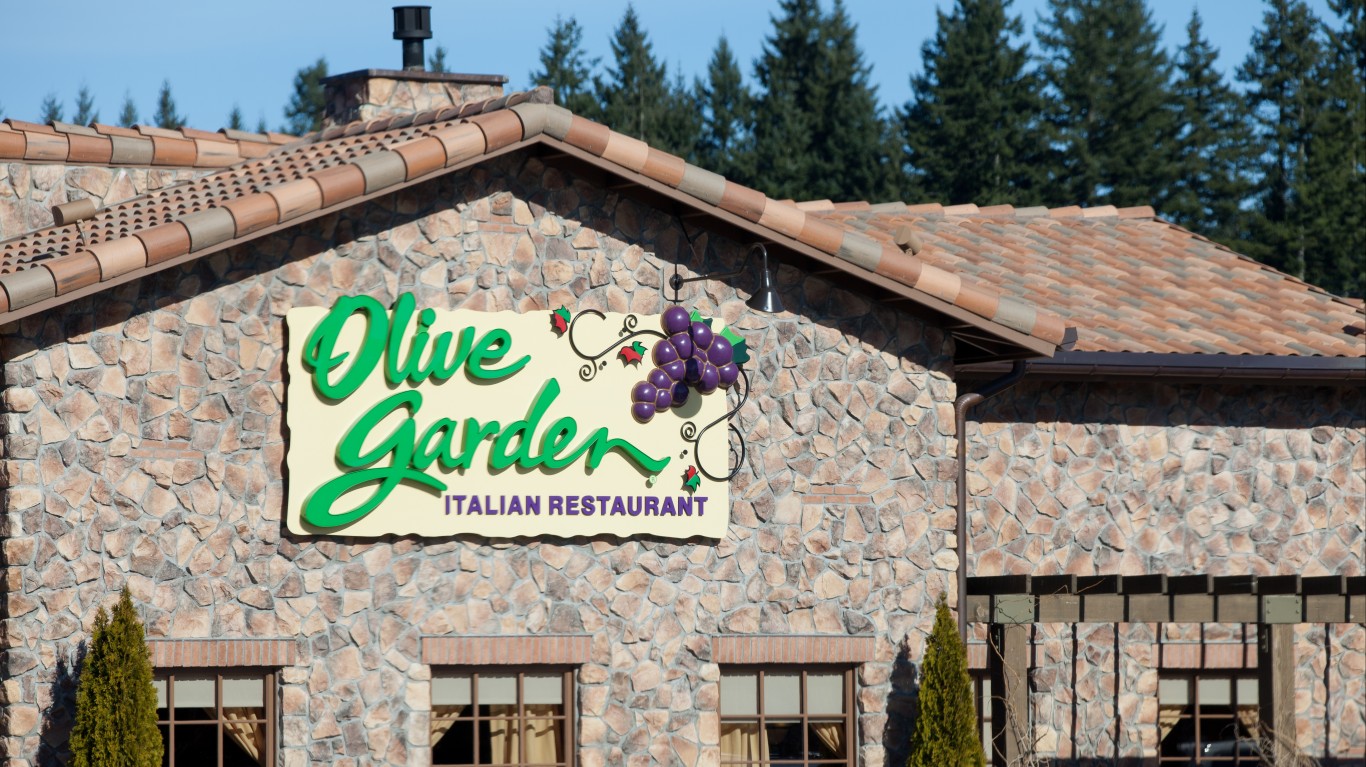
Olive Garden
> Type: Full-service
> Score: 79
As of last year, there were 866 Olive Gardens around North America, serving up generous portions of quasi-Italian food. Despite its spirit of “Hospitaliano” (not a real Italian word) — which Olive Garden defines as an expression of “our passion for delighting guests” — it was not among the top three full-service chains on this list. One initiative to help satisfy customers has been the recent integration of tabletop tablets to speed up the ordering process.
[in-text-ad-2]
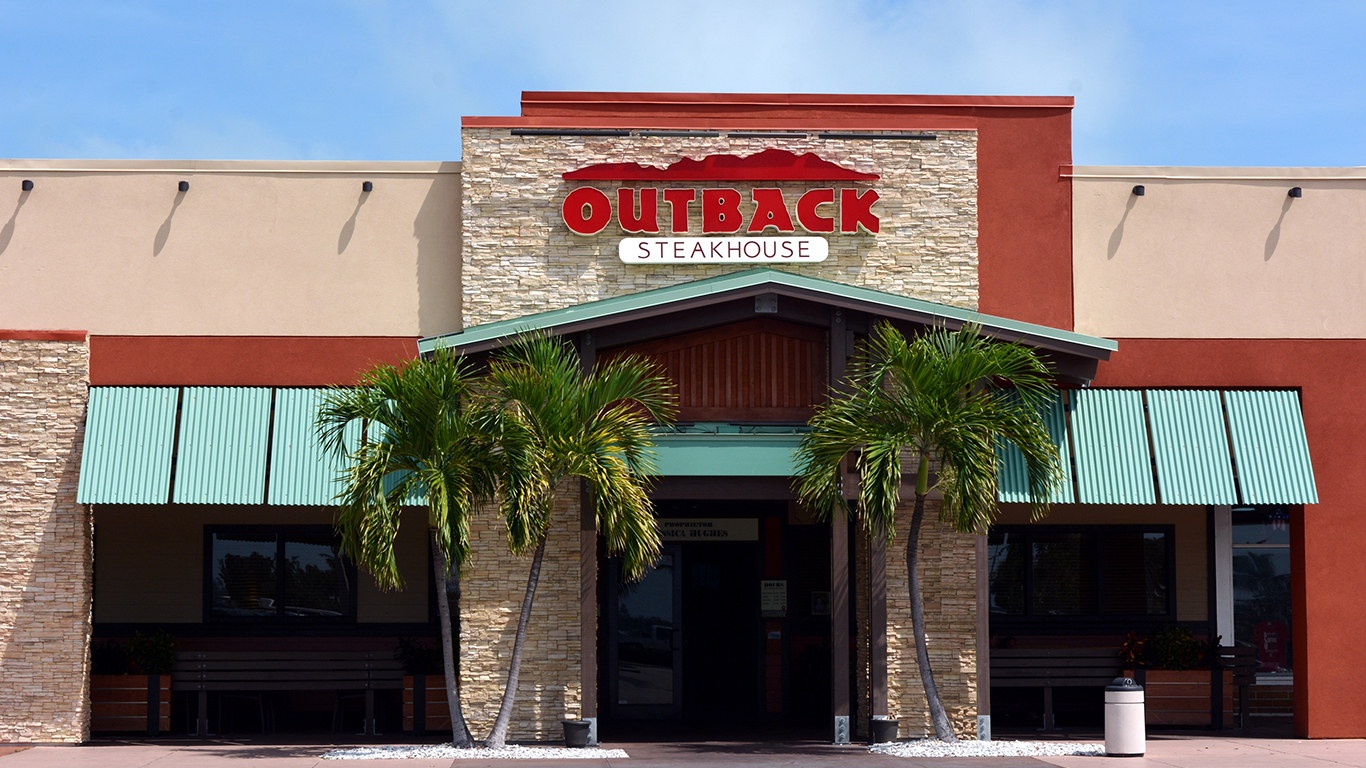
Outback Steakhouse
> Type: Full-service
> Score: 79
Last year, Outback engaged the digital marketing agency Response Labs Inc. to help ramp up the chain’s customer-targeted brand and loyalty programs. The restaurants also participate in a cross-brand rewards program. Customers who visit Outback and/or one or more of three other chains under the same corporate umbrella three times in a six-month period are offered a 50% discount on their fourth visit. (The other chains are Carabba’s Italian Grill, Bonefish Grill, and Fleming’s Prime Steakhouse and Wine Bar.)
Red Robin
> Type: Full-service
> Score: 79
Two years ago, this chain received a low ACSI score of 73. It rose substantially to 79 in 2018, but in 2019, as ACSI reports, diner satisfaction was “unmoved as the company continues to revamp its operations and close underperforming stores.” This year, according to Yahoo! Finance, the chain is attempting to drive growth through “menu innovation, operational improvement and creating a better customer service platform.”
[in-text-ad]
Chili’s
> Type: Full-service
> Score: 78
At the end of December, 2018, this chain reported its best customer traffic in more than a decade. According to the chain restaurant trade publication FSR, the change was driven by a new management strategy. Instead of offering customers limited time offers or other promotional deals, the chain, as FSR put it, “focus[ed] on menu and service, consistency, and how it could drive visits into a casual-dining category historically tied to low-frequency trends.” One tactic was to cut menu items from about 125 to 75, which reduced service times and increased customer satisfaction.

Red Lobster
> Type: Full-service
> Score: 78
This year’s ACSI score represents a 1% downturn for this seafood chain. In an effort to improve customer satisfaction, this February the chain rolled out new benefits for its My Red Lobster Rewards program. Guests who accumulate enough dining points are given platinum status, which grants them reward meals, bonus points, early access to special promotions, and unlimited free play on in-restaurant tabletop gaming devices.
Ruby Tuesday
> Type: Full-service
> Score: 78
This troubled chain closed 18 units last year, and 51 the year before. In 2019, Susan Beth, COO the chain’s parent company, NRD Capital, told Franchise Times that her firm was focused on reviving what she felt was dormant brand devotion. “We have a very strong belief,” she said, “…that brand love and devotion is strong enough that if we can deliver on the basics — hot food hot, cold food cold, clean bathrooms and service with a smile — we can get [customers] to love it again.”
[in-text-ad-2]
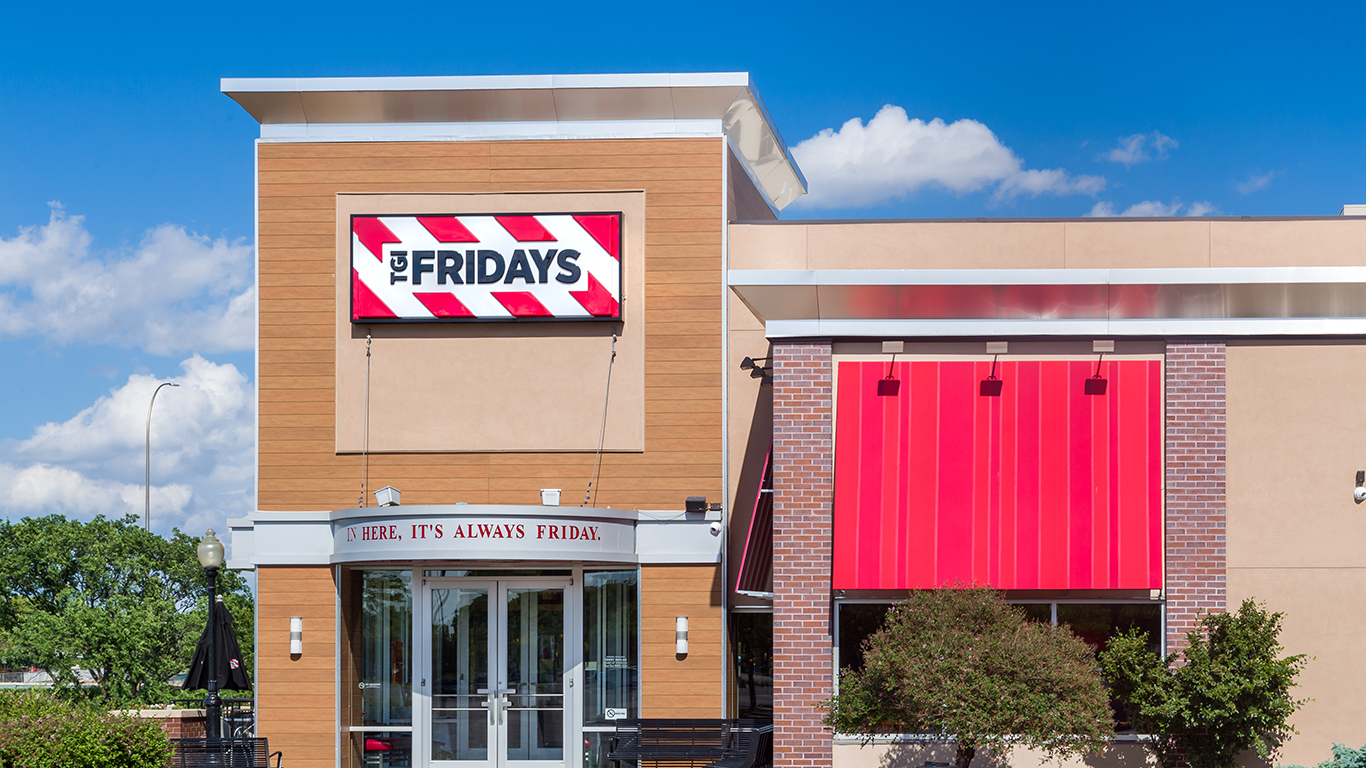
TGI Fridays
> Type: Full-service
> Score: 78
According to what Sherif Mityas, this chain’s “chief experience officer,” told a mobile customer experience conference last year, a good customer experience depends on how well an organization is “aligned with the customer’s journey, whether that’s an hour sitting at the bar or enjoying Jack Daniels ribs at a table or at home.” Towards that end, Fridays has employed AI technology to mine data from its credit card transactions, social media interactions, and other sources to send specifically targeted messages to patrons based on their usual orders and other dining habits.
Applebee’s
> Type: Full-service
> Score: 77
In 2017, after the addition of new menu items intended to appeal to a younger demographic failed to attract business, Applebee’s stock prices plummeted by 50% and the chain’s parent company closed 99 units nationwide. (About another hundred have been closed since then.) As late as the second quarter of fiscal 2019, the chain failed again with a new menu item, Loaded Fajitas, which, according to the chain restaurant trade publication FSR, “fell flat with Applebee’s core customer — the value-seeking guest it so often touts.” To help win back loyal customers, the chain is introducing server tablets that will theoretically enhance the guest experience, and activating a catering program for both business and residential customers.
[in-text-ad]
Denny’s
> Type: Full-service
> Score: 77
Though it’s in the cellar in the most recent ACSI ranking of full-service restaurants, its score of 77 the past two years represents a company high for the chain based on previous surveys. According to ACSI, Denny’s has “revamped menus, remodeled stores, and upgraded technology.” Nonetheless, they add, “ACSI data show that Denny’s lags the most when it comes to service speed.”
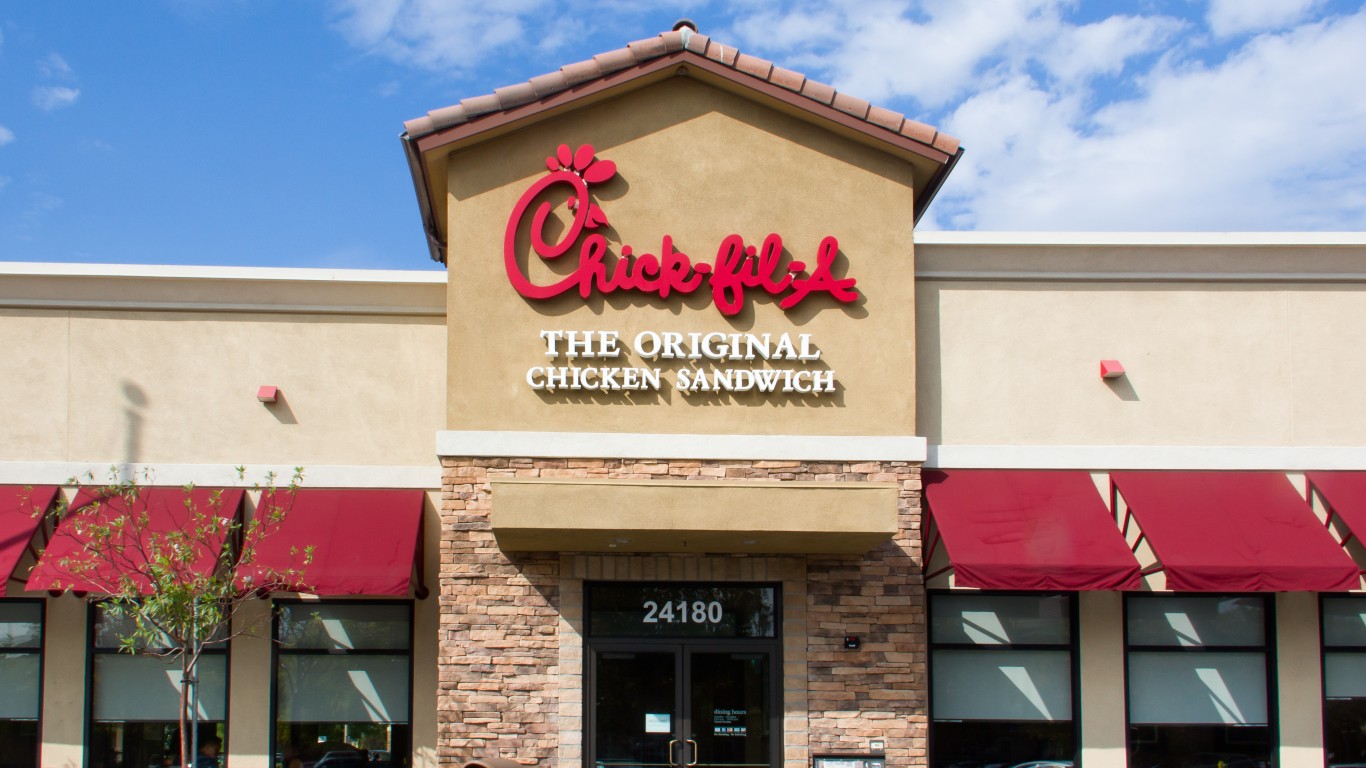
Chick-fil-A
> Type: Limited-service
> Score: 86
The highest-scoring restaurant across both the full-service and limited-service categories, Chick-fil-A nonetheless experienced a 1% decline from its ACSI score in 2018. “[T]he company still demonstrates customer satisfaction dominance,” according to ACSI, which adds “With its strong satisfaction edge and plans to continue expanding, the chicken specialist could pose a threat to even the largest players in the industry.” This is despite the fact that the chain has been widely criticized and sometimes boycotted over its owners’ support of anti-gay groups and its opposition to same-sex marriage — though in the past few years, protests have quieted.
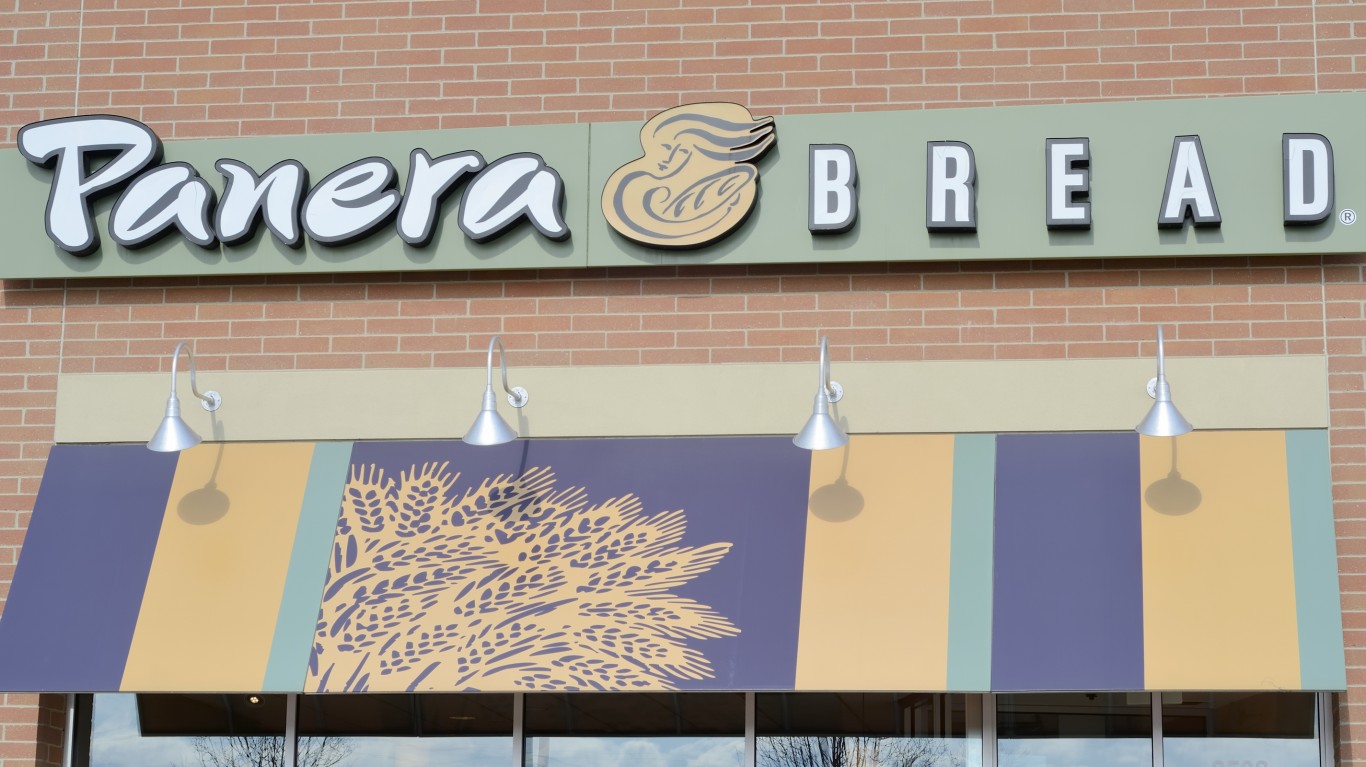
Panera Bread
> Type: Limited-service
> Score: 81
This year, Panera introduced a monthly coffee subscription initiative, whereby customers pay $8.99 a month for unlimited coffee at the chain’s units. To qualify, patrons must first be members of the MyPanera loyalty program. There are currently 38 million people enrolled, and in the past, Panera has gotten high marks for customer awareness of the program. However, the travel site Points, Miles & Martinis published complaints late last year from members who felt that they weren’t getting as much as they used to out of the program — and this month, the food site Delishably suggested that “While the program is simple to join and easy to use, its rewards are so skimpy that it’s barely worth the minimal effort to sign up.”
[in-text-ad-2]
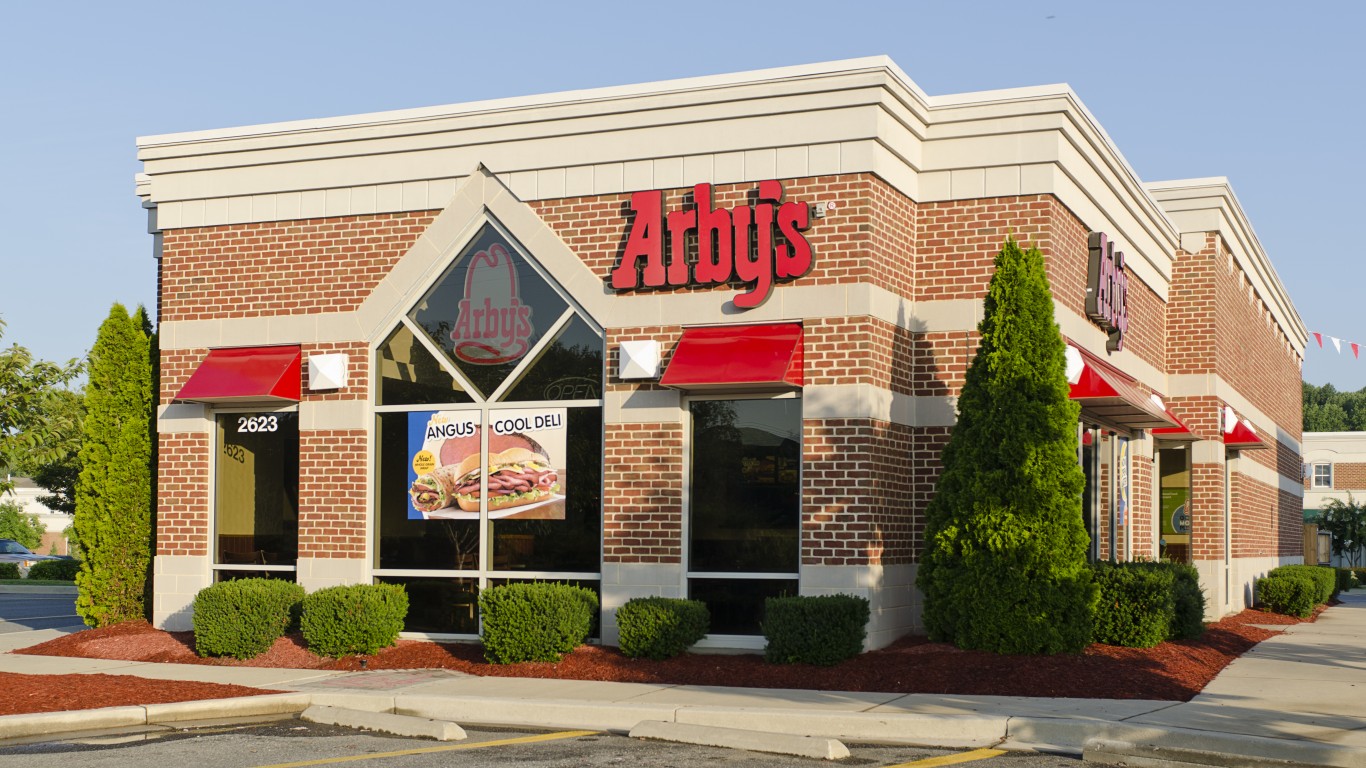
Arby’s
> Type: Limited-service
> Score: 80
Arby’s apparently cares so much about tracking customer opinions that it is offering a chance to win cash prizes to anyone who completes its Guest Satisfaction Survey. According to the financial advice site MoneyWise, despite the chain’s high customer satisfaction score, some patrons feel that it’s not as clean as some of its competitors, and that its menu should offer more healthy options.
Chipotle Mexican Grill
> Type: Limited-service
> Score: 80
After apparently dealing successfully with the issues that afflicted the chain with a series of bacterial outbreaks sickening hundreds in past years, Chipotle recorded a 1% uptick in customer satisfaction from 2018. ACSI notes that “While Chipotle’s ACSI score has not returned to its higher level prior to the company’s food safety crisis, it does show incremental improvement since the large drop in 2016.”
[in-text-ad]
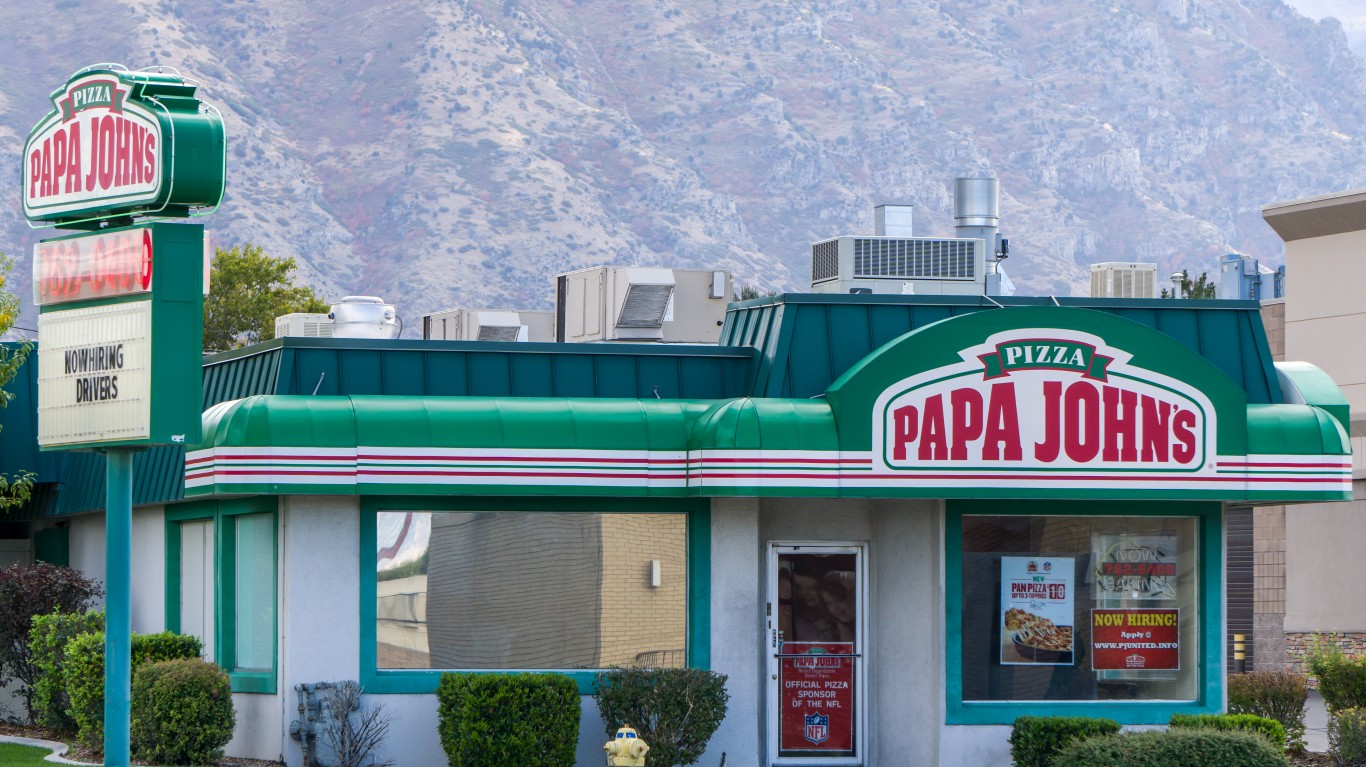
Papa John’s
> Type: Limited-service
> Score: 80
This popular pizza chain endured negative publicity in 2018, after its founder and then-CEO, John Schnatter, made offensive remarks about the NFL’s handling of national anthem protests. According to ACSI, it “has been working to restore its reputation and ACSI stability shows that it’s weathering the storm.” Its current score puts it in a tied position with competitor Pizza Hut (below), but ACSI reports that “Papa John’s shows an edge in the critical mobile arena, where its app rates best in class on quality.”
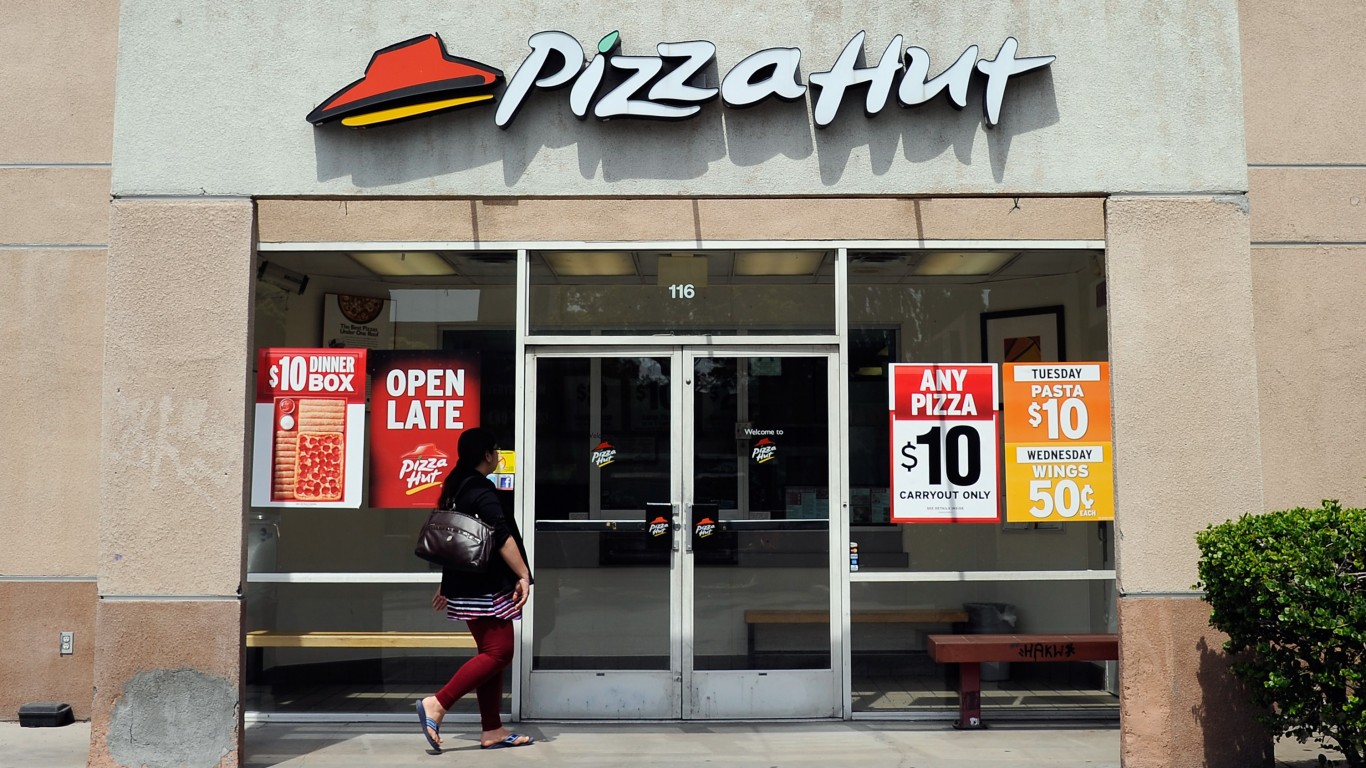
Pizza Hut
> Type: Limited-service
> Score: 80
Tied with Papa John’s (above) as the highest-placing pizza chain on this list, Pizza Hut has built a customer experience team over the past several years, devoted not only to improving user experience directly but also to data analytics, web design, and social media initiatives. The chain also launched a Hut Rewards loyalty program in 2017, and is investing heavily in new product development.

Domino’s
> Type: Limited-service
> Score: 79
The world’s largest pizza chain has increased its margins by adding non-pizza items to its menu — including pasta, boneless chicken offerings, and sandwiches. In the past couple of years, it has also invested in technological improvements, as more than 60% of its orders are now placed online, about half of those via mobile. Among its innovations are zero-click ordering (users of the chain’s app can save a favorite pizza, which will be automatically ordered ten seconds after they open the app) and the establishment of 150,000 Domino’s Hotspots — delivery locations that lack addresses, like beaches, parks, and playing fields.
[in-text-ad-2]
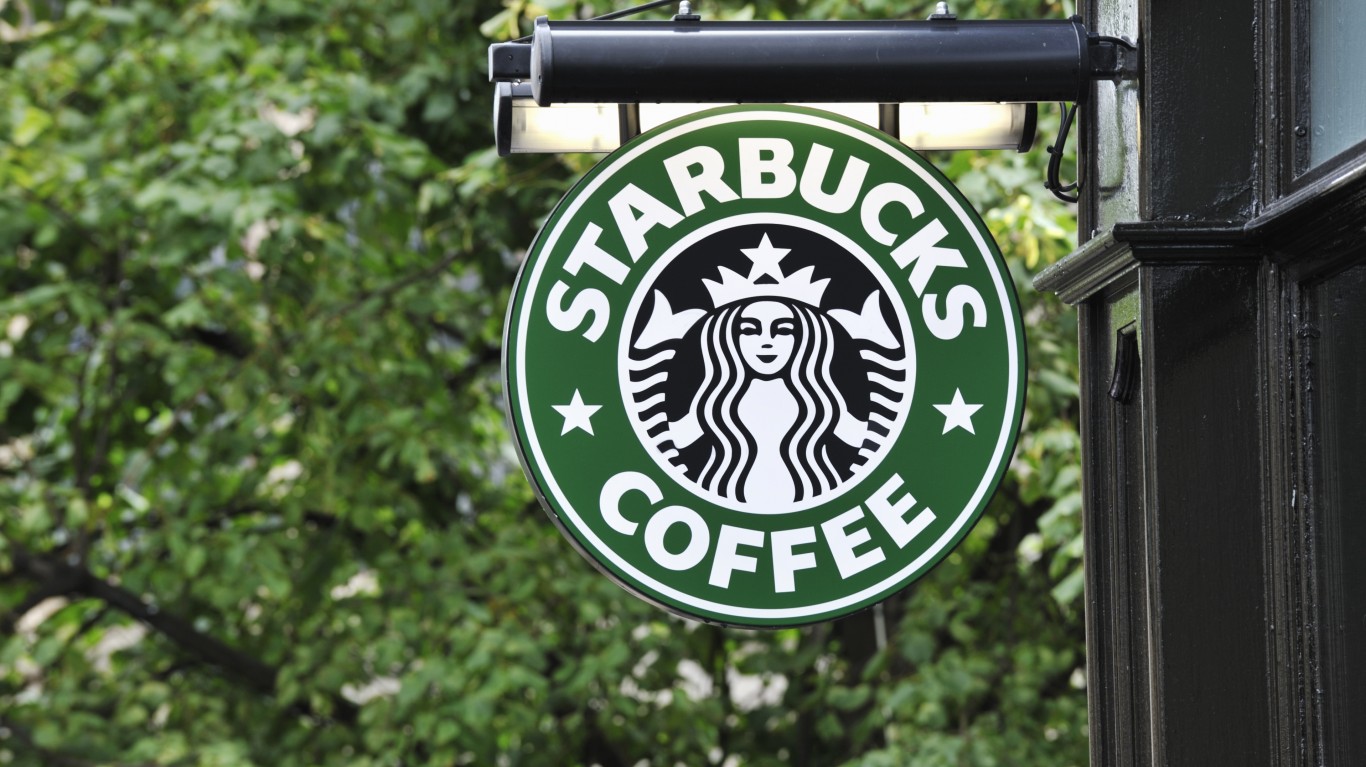
Starbucks
> Type: Limited-service
> Score: 79
This ubiquitous coffee and breakfast chain helps secure customer fidelity with a rewards program that offers easy ordering, free refills, opportunities to earn free food and drink, and other perks. The consulting firm Apttus recently suggested that when people think of customer service, Starbucks might come to mind. That’s because, says Apttus, the chain “[k]nows their customer’s name and who they are; [k]nows their customer’s previous orders; [and] always is creating fresh and new ideas based on customer feedback.
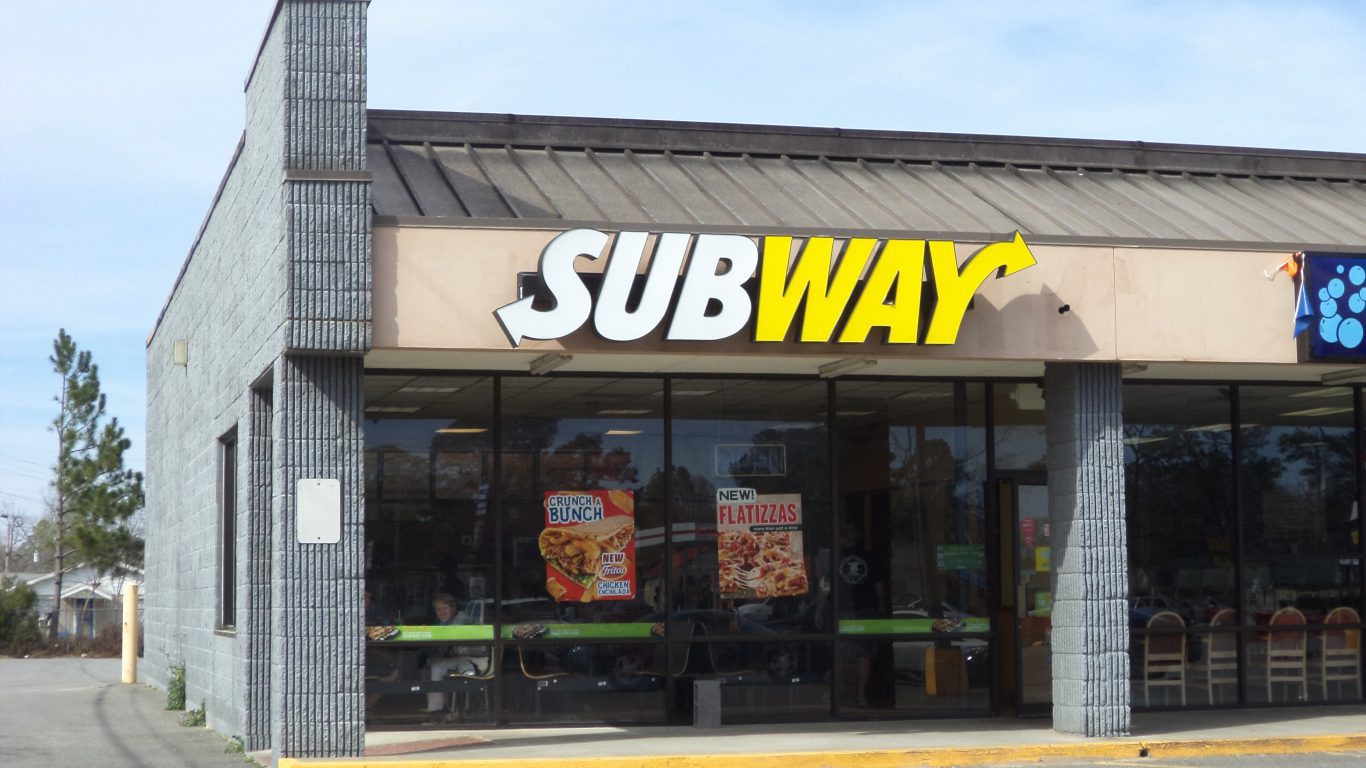
Subway
> Type: Limited-service
> Score: 79
The world’s largest fast-food chain by far in number of units, Subway was down 1% in the latest ACSI ranking over the previous year. It has also closed more than 2,300 locations since 2016. Perhaps, suggests the customer service site Customer Contact Week, the chain needs to establish new reputation-building processes instead of contributing to a perceived customer association of Subway with “disengaged customer service, unhygienic infrastructure, and improperly staffed fast food restaurants.” The site suggests that Subway improve employee benefits to attract better workers, introduce more promotional incentives for customers, and/or enhance online ordering capabilities.
[in-text-ad]
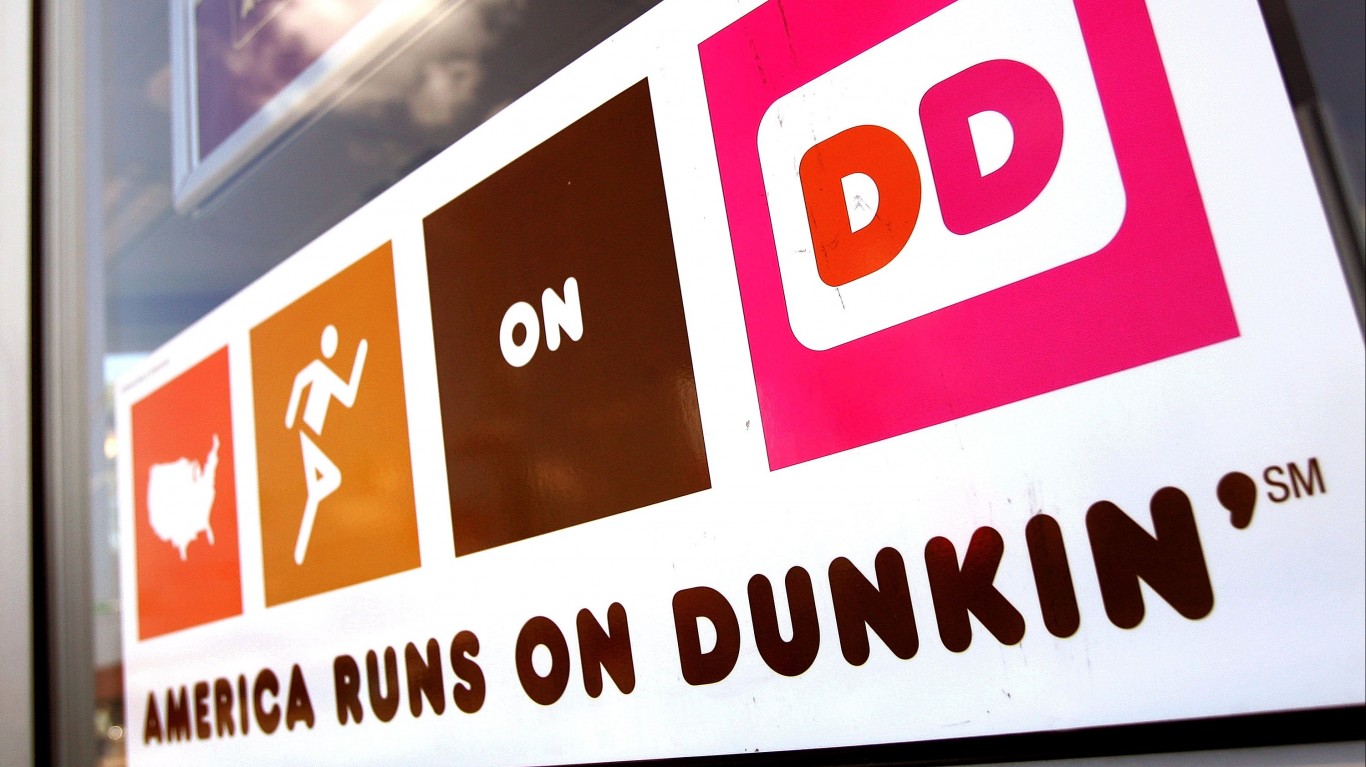
Dunkin’
> Type: Limited-service
> Score: 78
Two years ago, Dunkin’ Donuts — which officially rebranded all of its stores to just “Dunkin'” in January of 2019 — announced plans for a $100 million revamp, focusing on new technology, refreshed design, and menu innovation, including the introduction of upgraded espresso. It is currently running an online survey called “Tell Dunkin’,” in an attempt to personalize relationships with their customers.
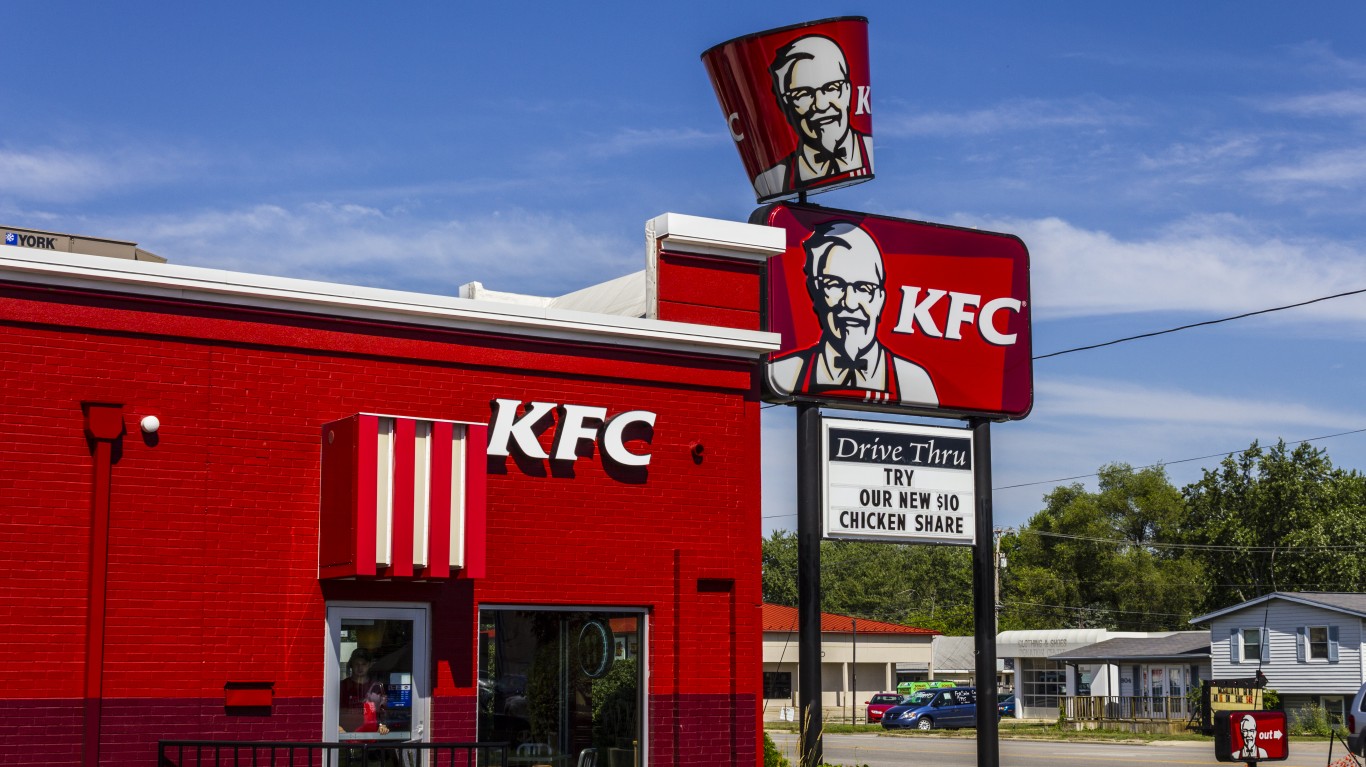
KFC
> Type: Limited-service
> Score: 78
According to an article in Forbes earlier this year, this chain was in trouble a few years back, with store closures and its stock in decline. The problem wasn’t with the product, said the publication, but with customer interaction with the brand. Late last year, Yum! Brands, the chain’s parent company, rolled out a new initiative to (as the fast-casual and quick-service trade publication QSR put it) “ensure the company provides a best-in-class digital journey across mobile, online, delivery, and restaurant operations.” KFC’s new approach to its digital presence, said Forbes, “was as customer-centric as it gets.”
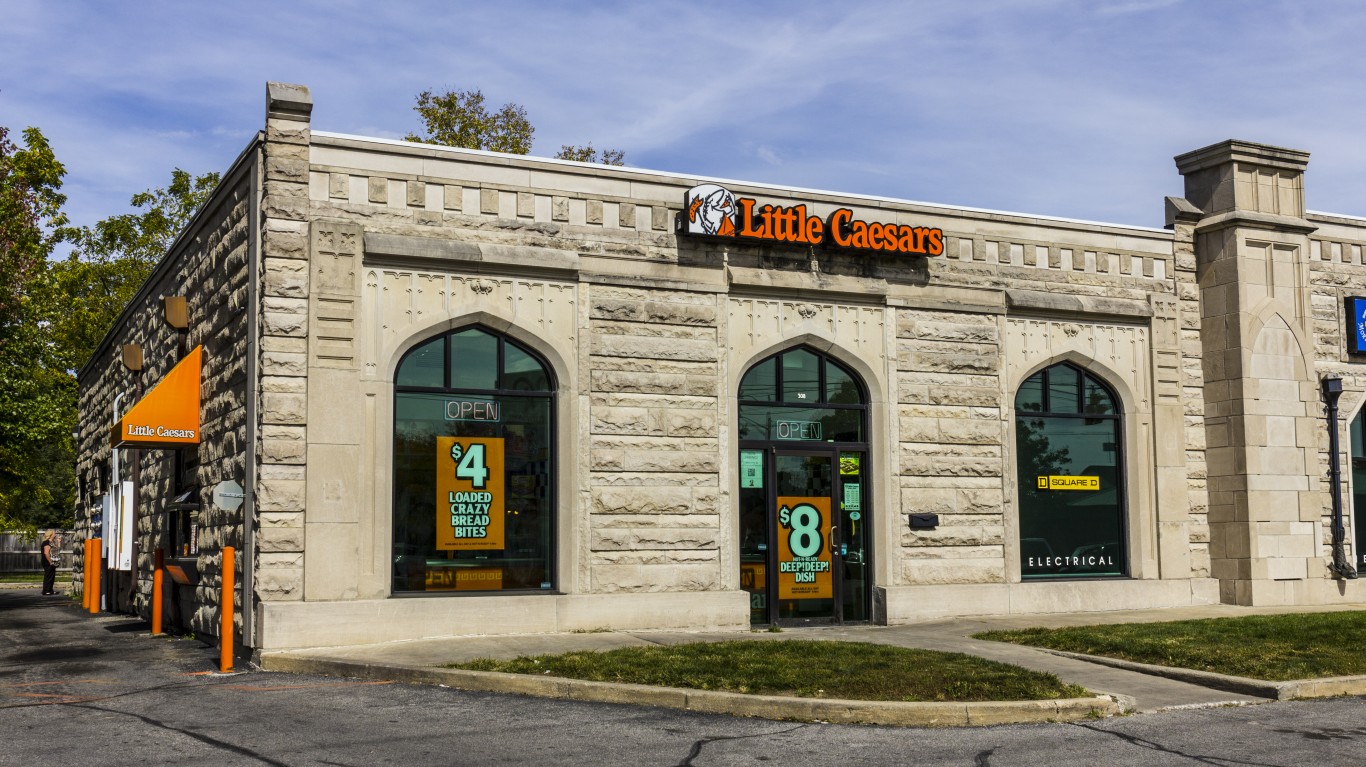
Little Caesars
> Type: Limited-service
> Score: 77
While Pizza Hut and Papa John’s (see above) are tied at a respectable 80 points on this list, and Domino’s repeated the previous year’s score of 79, this pizza chain, noted ACSI, “continues to trail its rivalsâ¦.” While it is known for good value, ACSI’s assessment is that “customers feel its menu lacks variety compared with other pizza makers.” They add “It will be interesting to see if the chain’s foray into plant-based products, the Impossible pizza, will boost customer perceptions next year.”
[in-text-ad-2]
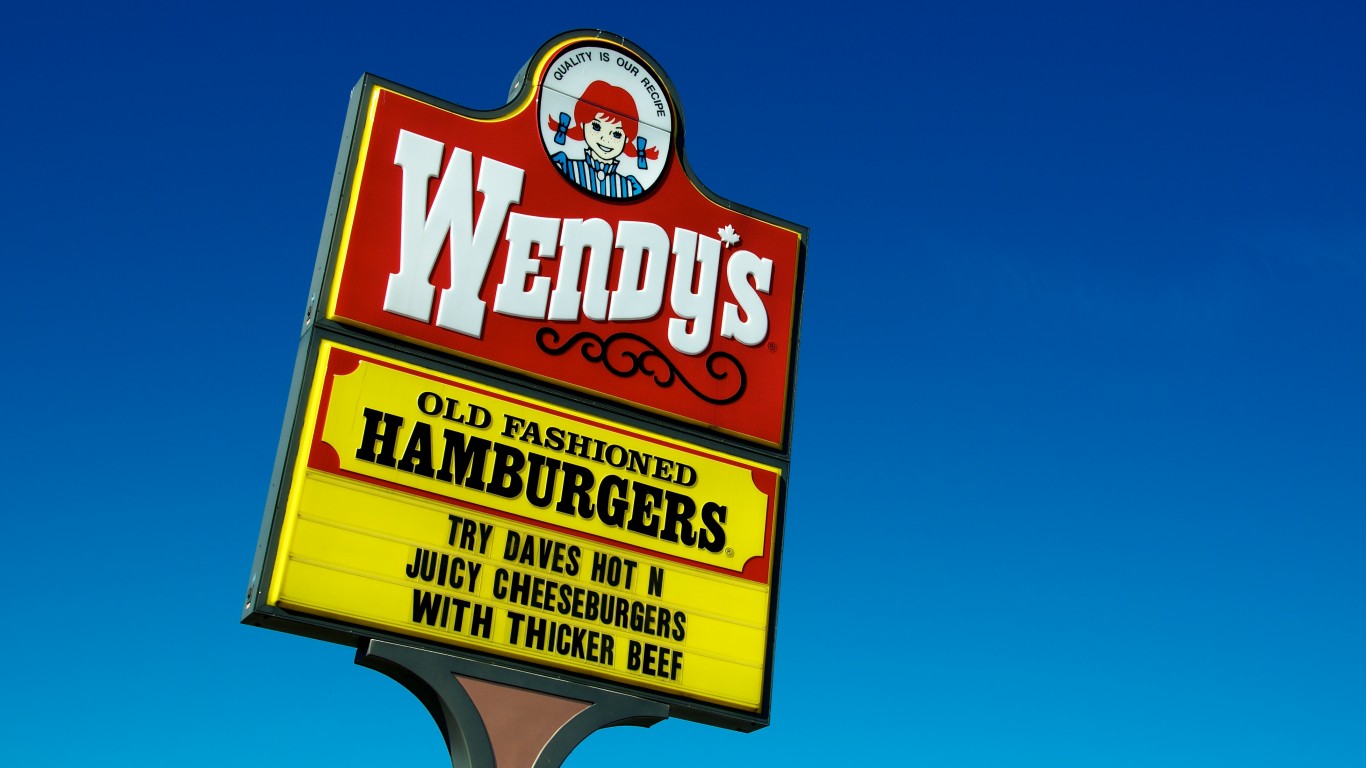
Wendy’s
> Type: Limited-service
> Score: 77
Last year, the second-most successful burger chain after McDonald’s made a major investment in strategies to increase digital sales, reporting that customers who order on mobile devices spend 20% more — and up to 50% or 60% more when the orders are for delivery. The chain is also tracking customer data more closely and has instituted a loyalty program. In addition, as the Medium.com site The Startup put it, Wendy’s social media campaign “hit the trifecta of humor, brand awareness, and authenticity.” This proved to be, said The Startup, a game-changer for the chain.
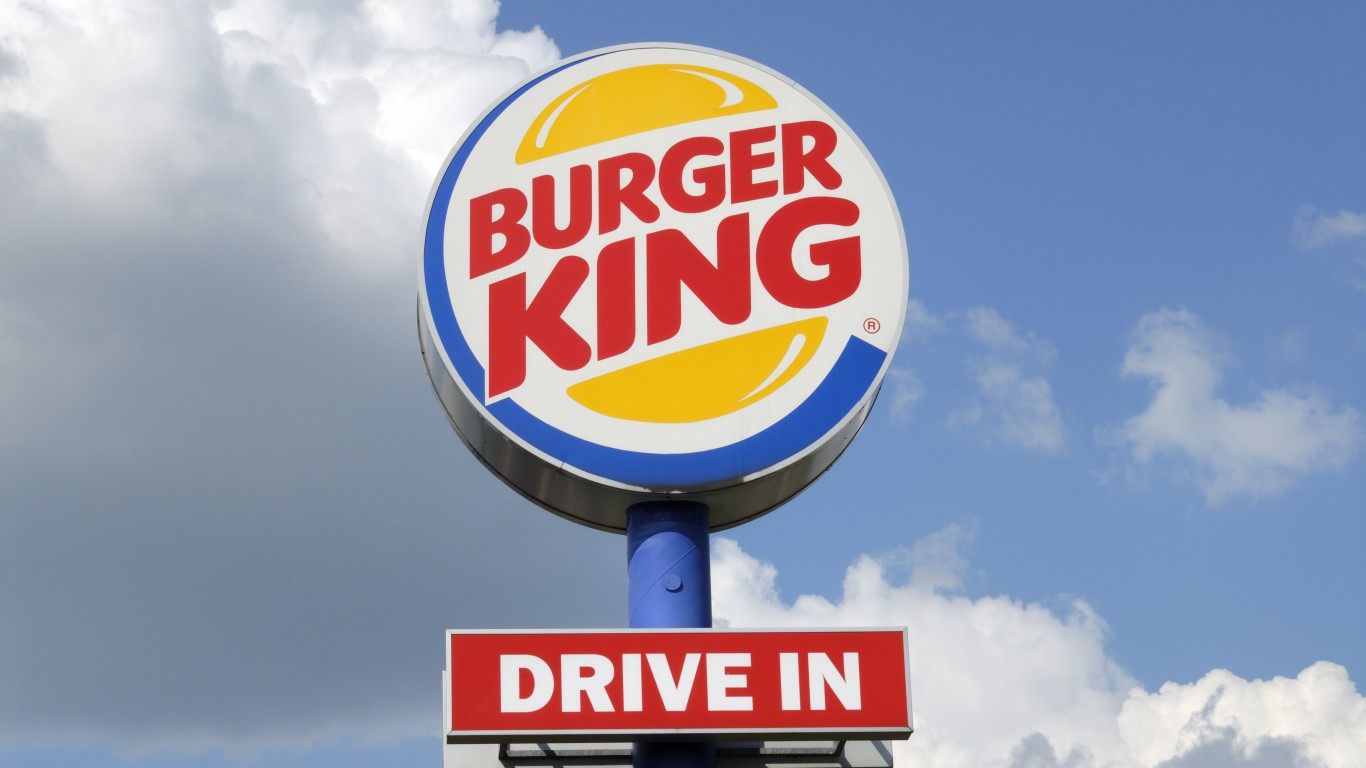
Burger King
> Type: Limited-service
> Score: 76
This popular burger chain’s campaign of irreverent ads aimed at the 18-to-34 demographic was considered by some to be a major marketing misstep. As the small business consulting site allBusiness put it, “While their competitors added lighter and healthier items to their menus, BK relied on an ad campaignâ¦[and with] people are eating healthier, the goofy adsâ¦[were] not a strong enough draw.” The chain gained attention last year, though, with the limited introduction of its plant-based Impossible Whopper. According to ACSI, this year’s survey results “may show whether or not the plant-based product is a satisfaction game changer in the burger segment.”
[in-text-ad]
Sonic Drive-In
> Type: Limited-service
> Score: 76
This drive-in chain has introduced a new slogan and new TV ads which it hopes will result in a stronger sense of customer connection, according to the research and consulting firm Gartner. Sonic also promotes its app, which lets users pre-order and pay with their phones, get rewards, and receive special offers and alerts about new items.
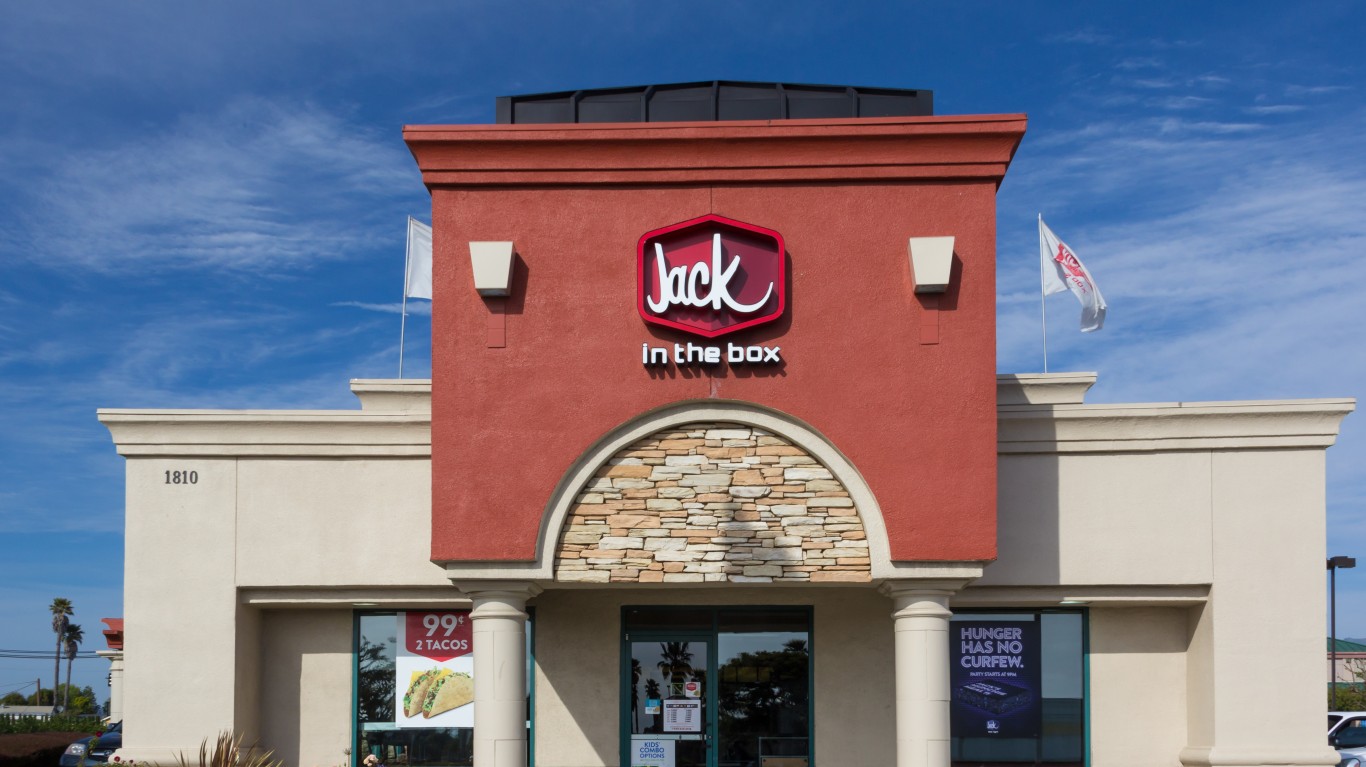
Jack in the Box
> Type: Limited-service
> Score: 75
Among this low-ranking burger chain’s strategies for improving customer experience last year were bringing in new digital menu boards and designating parking areas for pickup and delivery; increasing value-priced promotional items; bundling menu items for a single price; moving into the fast-food chicken market; and remodeling restaurants.
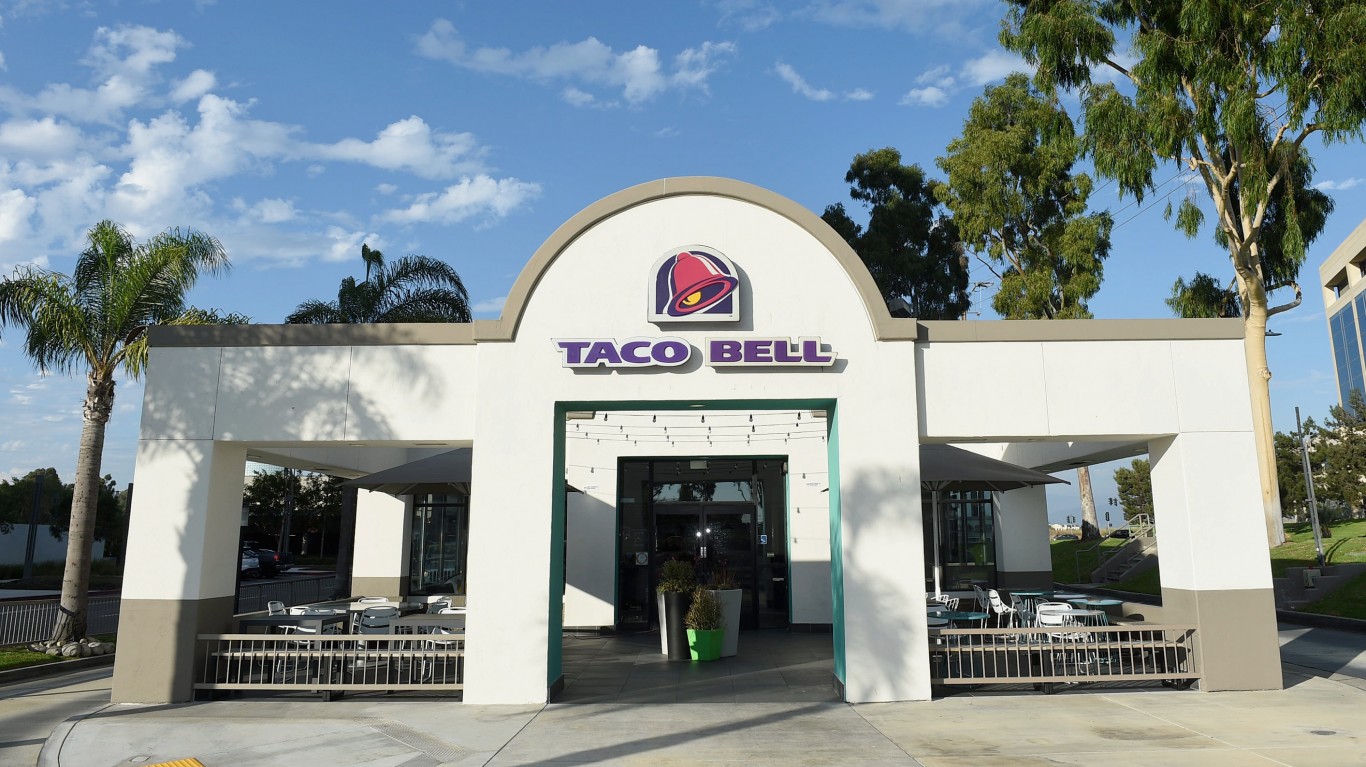
Taco Bell
> Type: Limited-service
> Score: 75
The number-two fast-food Mexican chain on this list (after Chipotle; see above) kicked off 2020 by hiring a Director of Loyalty and Personalization — responsible for “development and implementation of the loyalty strategy to build relationships with our fans and provide a more personalized Taco Bell experience,” according to the job description. Last year, the chain announced that it was revamping restaurant interiors and beginning to offer healthier menu options.
[in-text-ad-2]
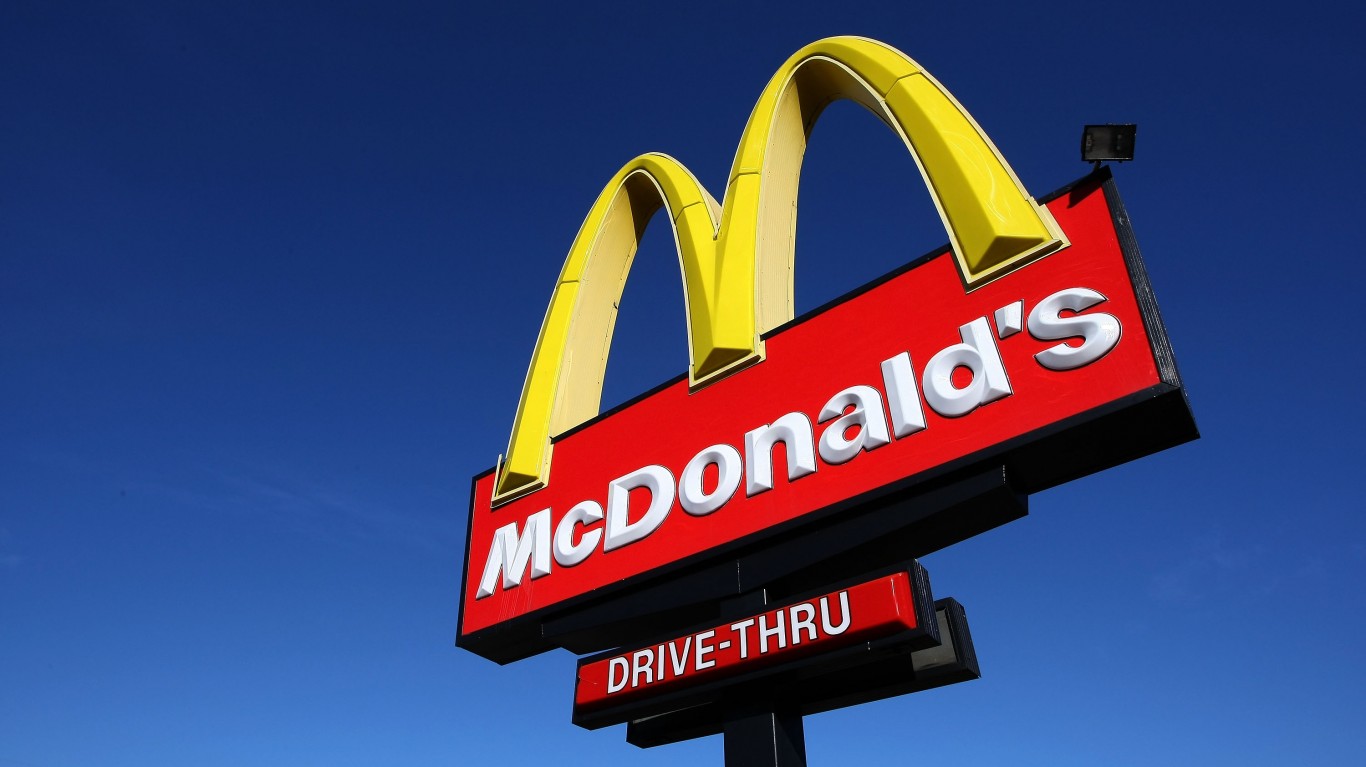
McDonald’s
> Type: Limited-service
> Score: 69
The world’s second-largest fast-food chain (after Subway) in number of units (but by far the most successful in systemwide U.S. sales) has modernized its operations, adding self-order kiosks and initiating curbside pickup for mobile orders, among other things. However, notes ACSI, “Thus far, guest satisfaction has not budged as McDonald’s stagnates at the low score of 69 for the fourth straight year.”
100 Million Americans Are Missing This Crucial Retirement Tool
The thought of burdening your family with a financial disaster is most Americans’ nightmare. However, recent studies show that over 100 million Americans still don’t have proper life insurance in the event they pass away.
Life insurance can bring peace of mind – ensuring your loved ones are safeguarded against unforeseen expenses and debts. With premiums often lower than expected and a variety of plans tailored to different life stages and health conditions, securing a policy is more accessible than ever.
A quick, no-obligation quote can provide valuable insight into what’s available and what might best suit your family’s needs. Life insurance is a simple step you can take today to help secure peace of mind for your loved ones tomorrow.
Click here to learn how to get a quote in just a few minutes.
Thank you for reading! Have some feedback for us?
Contact the 24/7 Wall St. editorial team.
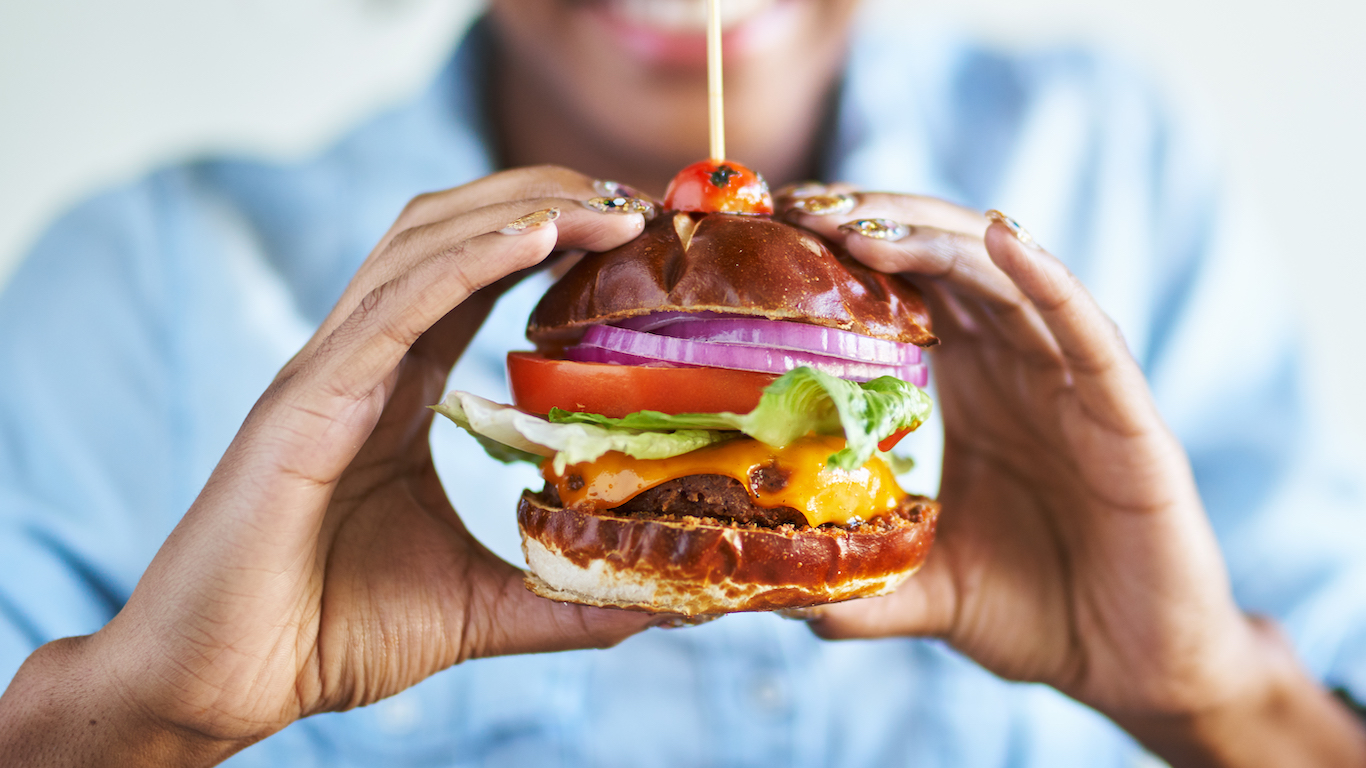 24/7 Wall St.
24/7 Wall St.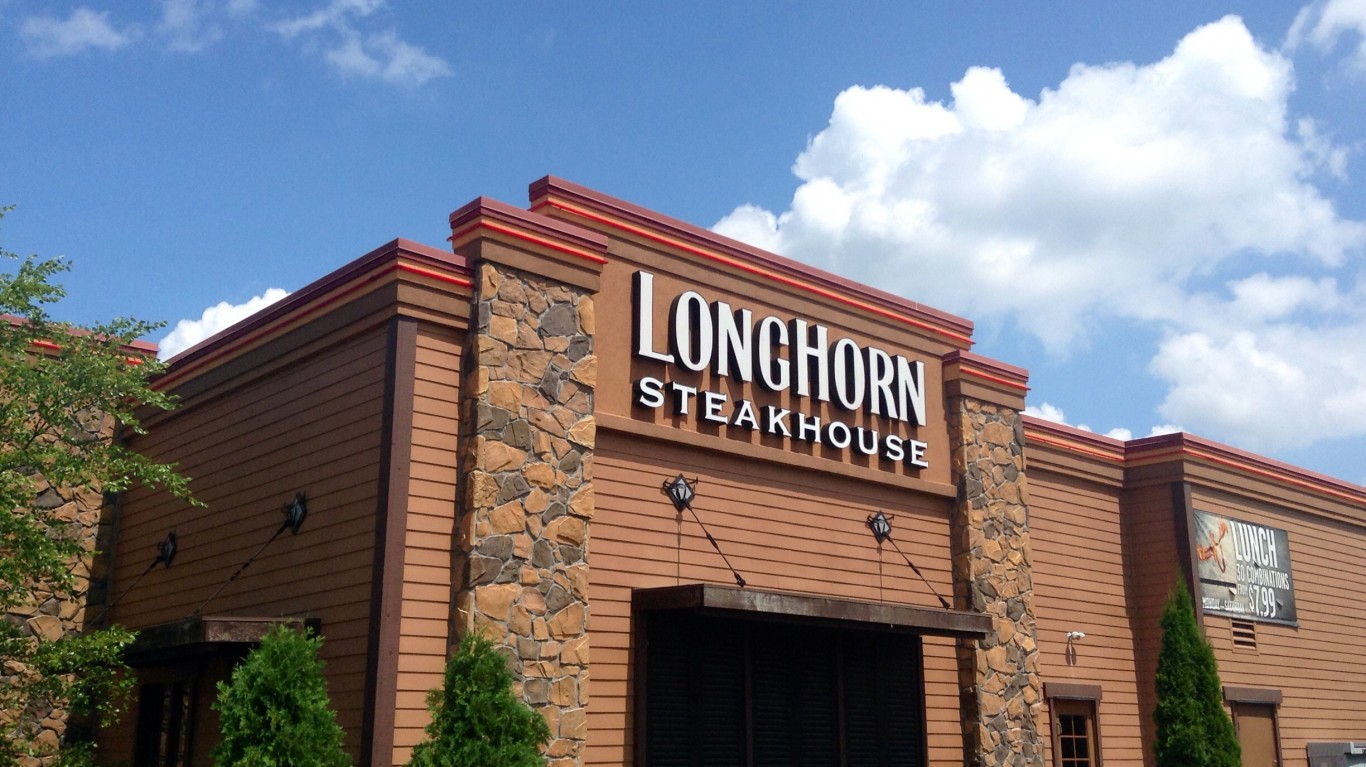
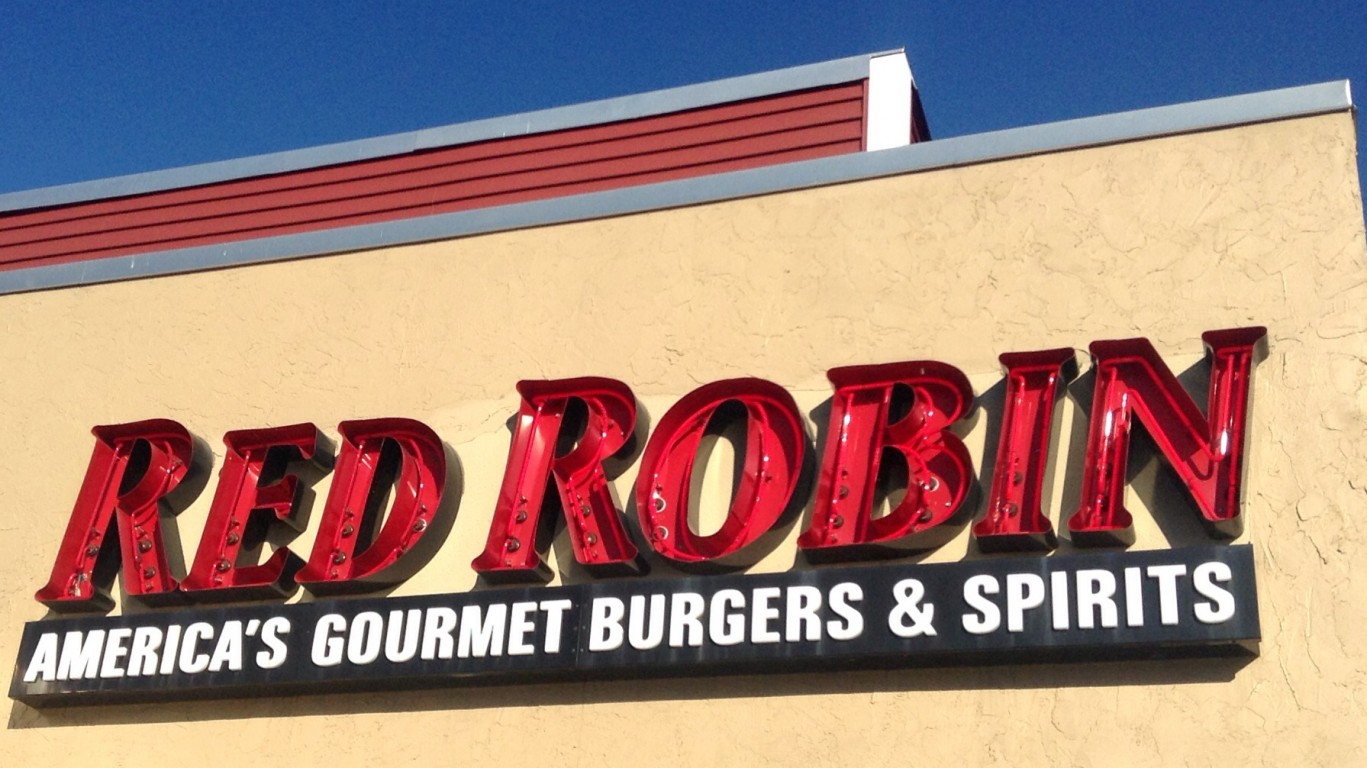
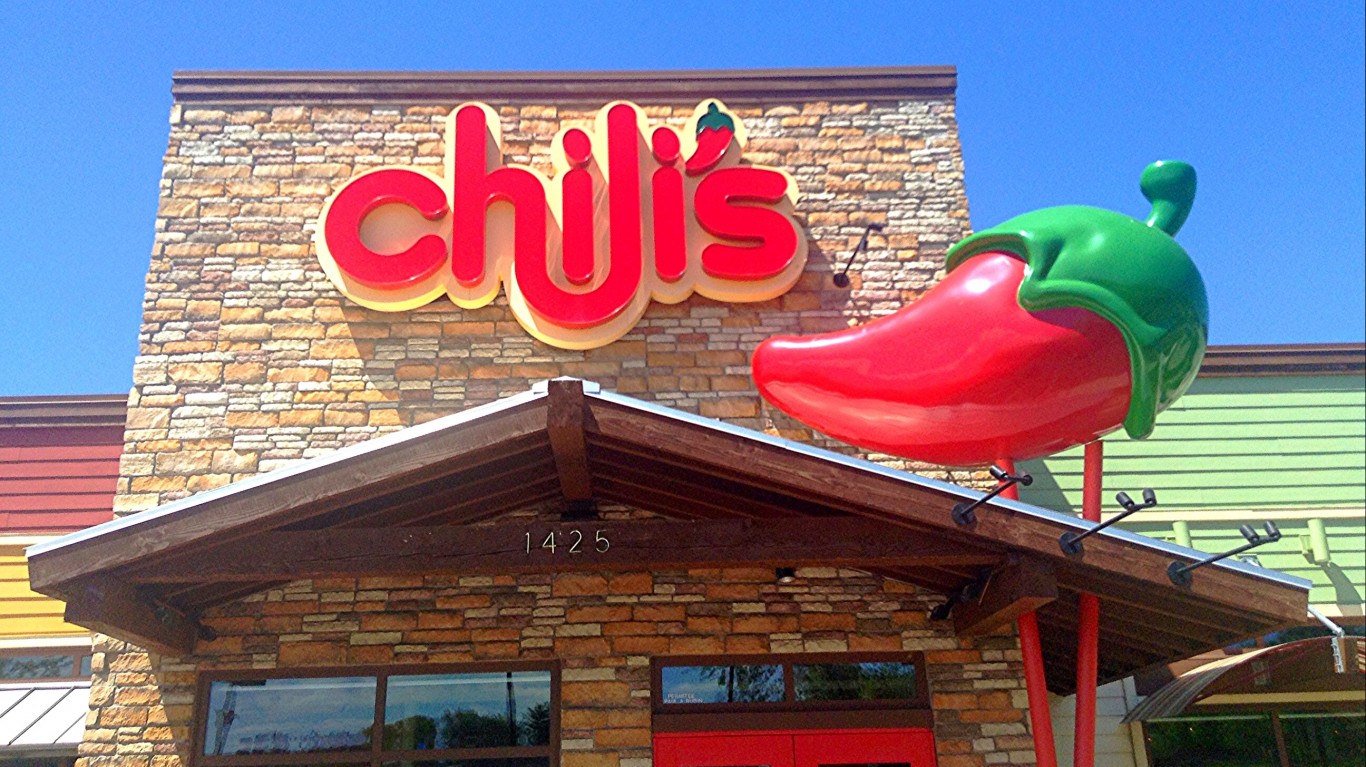
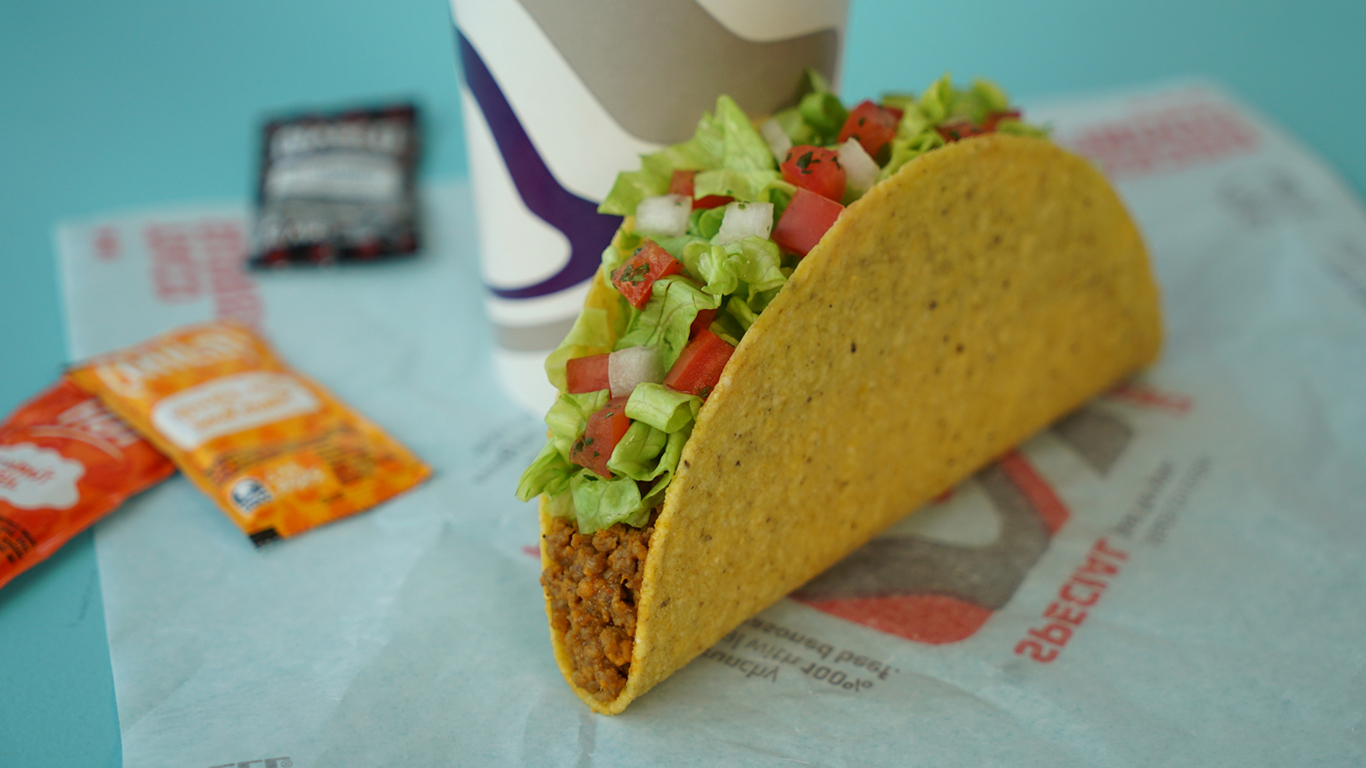 24/7 Wall St.
24/7 Wall St.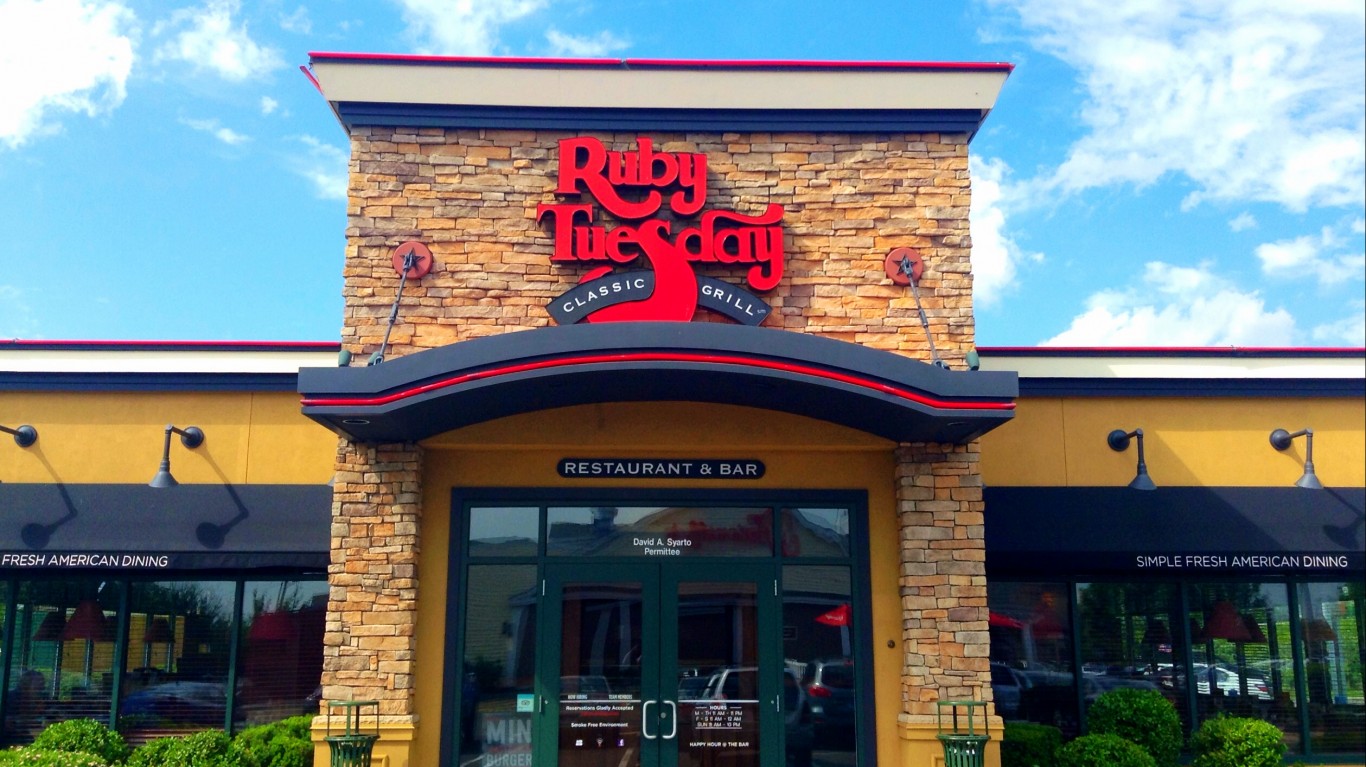
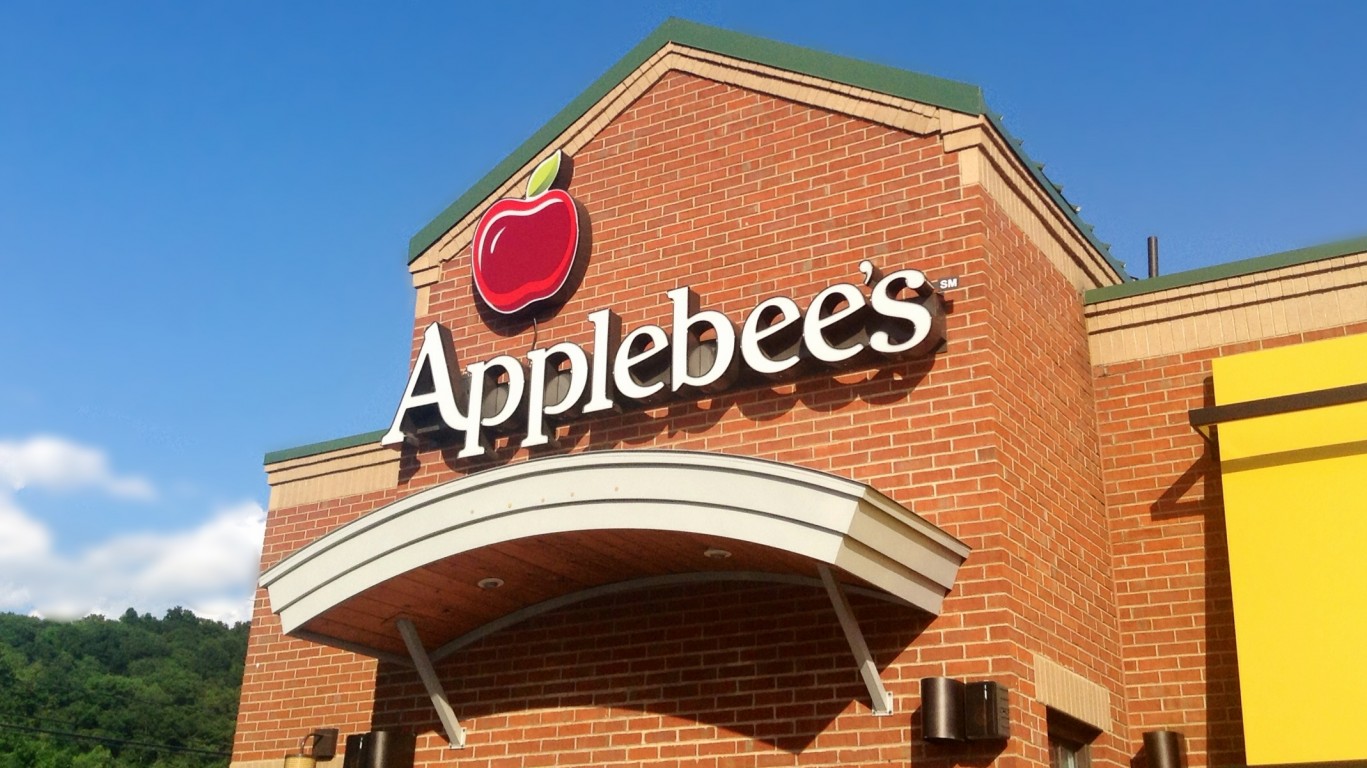
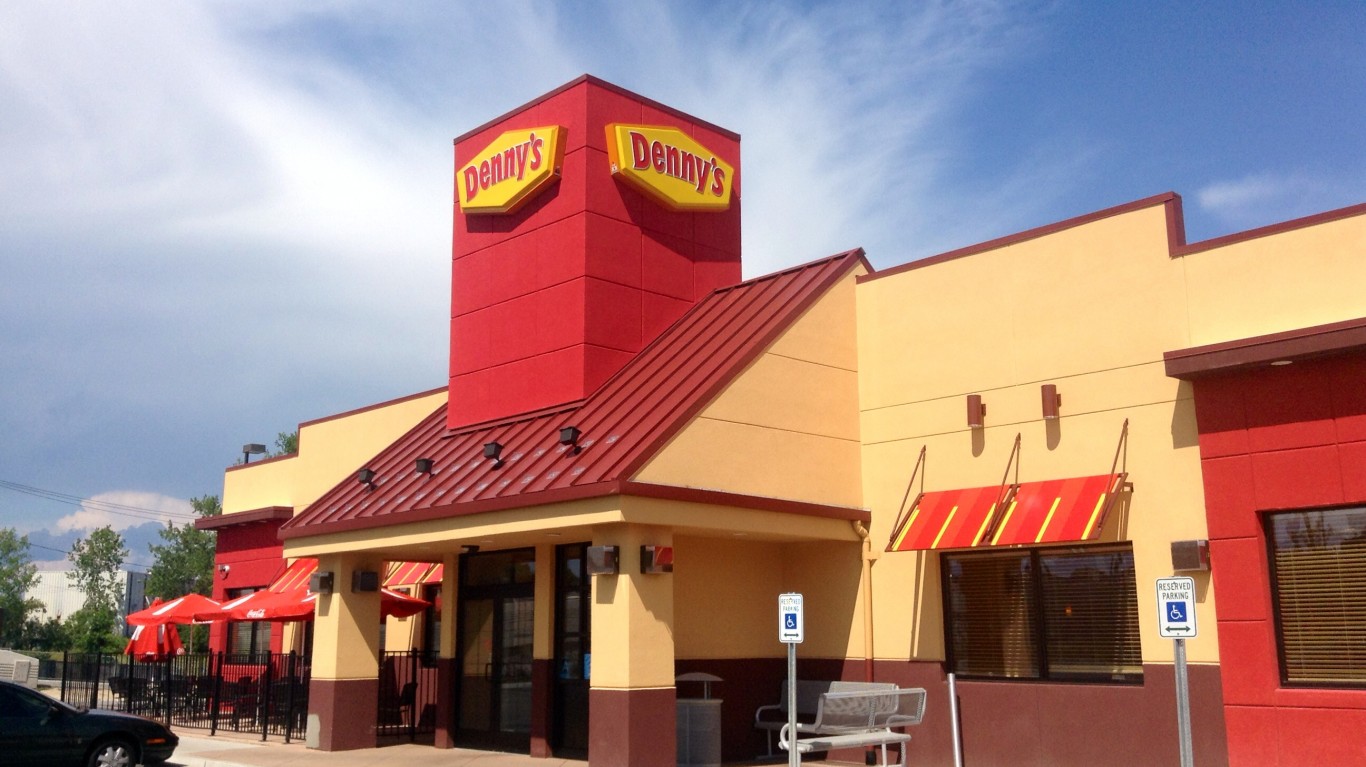
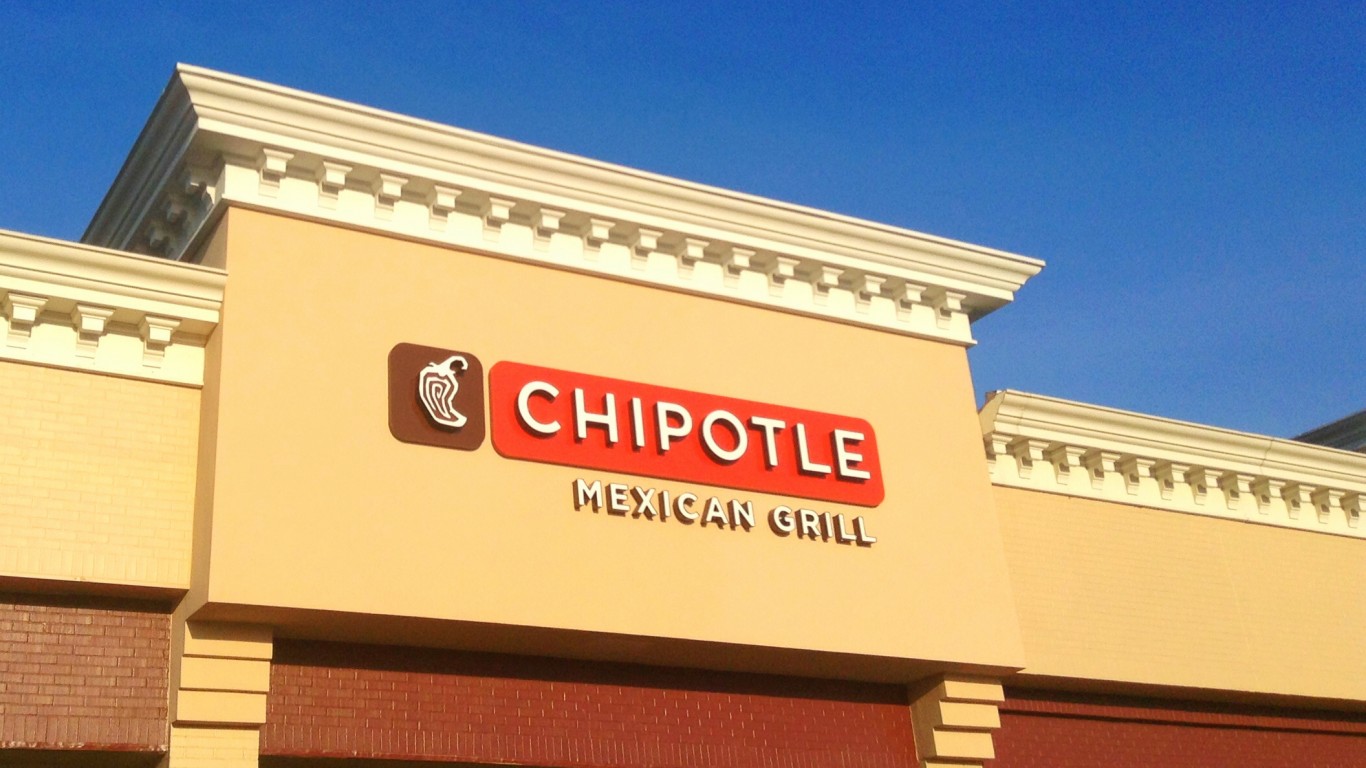
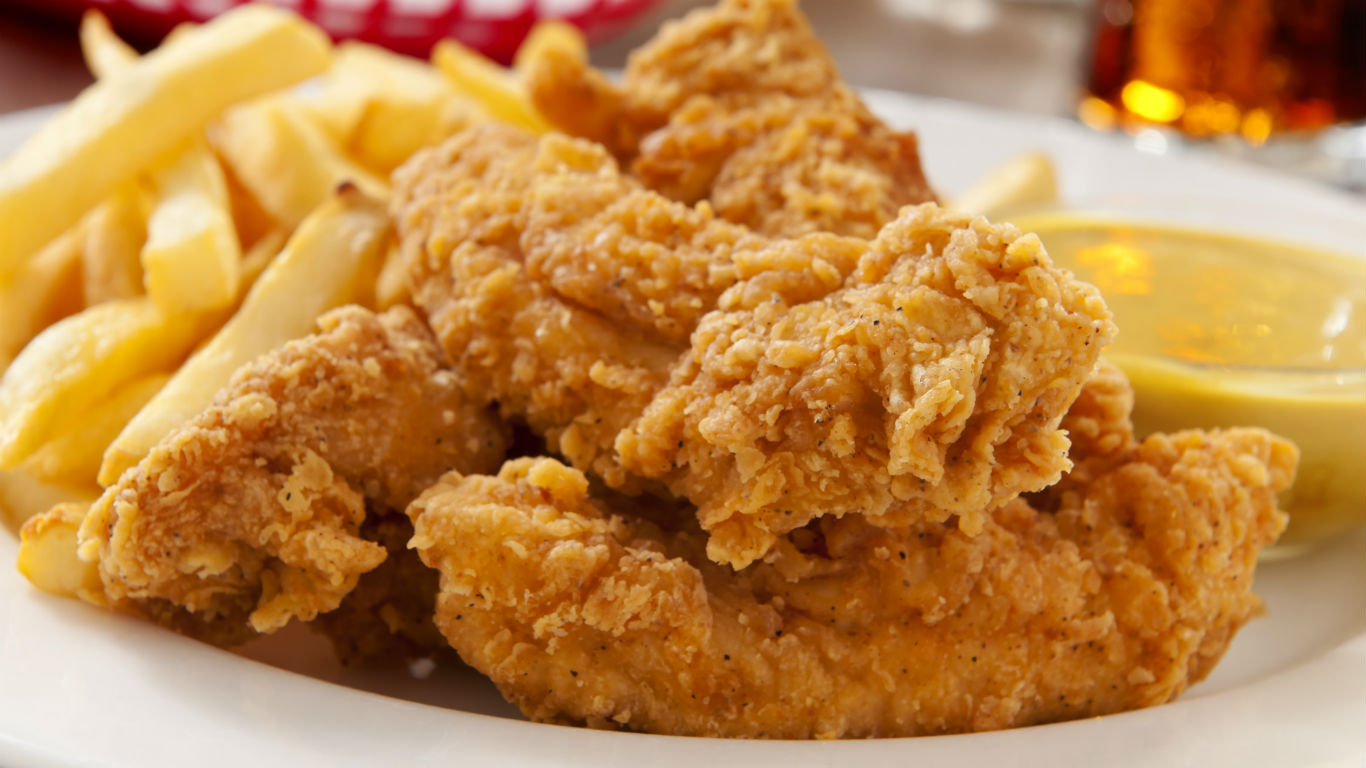 24/7 Wall St.
24/7 Wall St.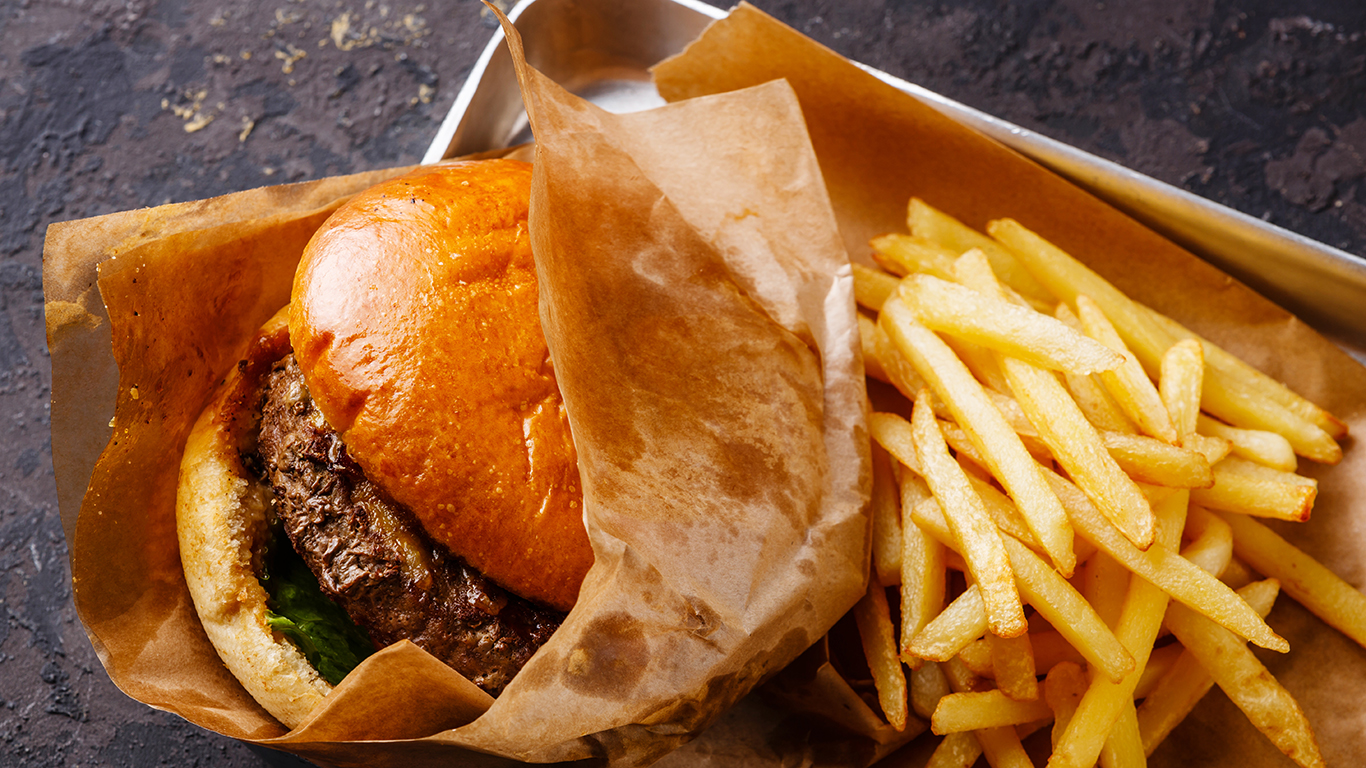 24/7 Wall St.
24/7 Wall St.